How Much Fuel Does a Yacht Use? An In-Depth Analysis
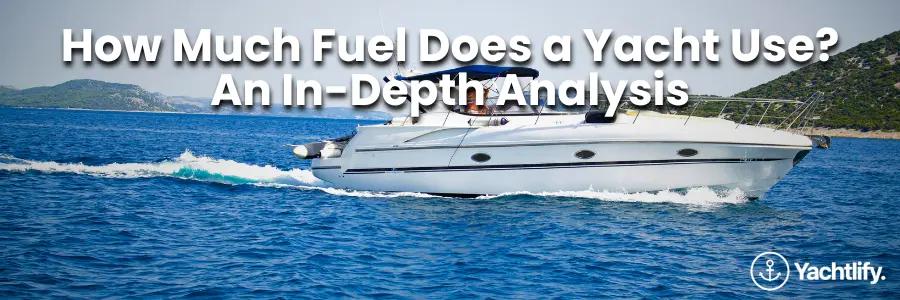
When it comes to luxury and adventure on the high seas, yachts are the epitome of both. Whether you’re a yacht owner or dreaming of chartering one for your next vacation, understanding the fuel consumption of these majestic vessels is crucial. Fuel usage not only impacts the cost of your journey but also has environmental implications. In this article, we dive into the factors affecting yacht fuel consumption and provide insights to help you estimate how much fuel a yacht uses.

Understanding Yacht Fuel Consumption
Fuel consumption in yachts is influenced by several factors, including the yacht’s size, engine type, cruising speed, and conditions at sea. Here, we break down these elements to give you a clearer picture.
Yacht Size and Engine Type
Yachts come in various sizes, from smaller 40-foot models to massive 100-foot plus luxury liners. Generally, the larger the yacht, the more fuel it consumes. Engine type also plays a significant role. Traditional diesel engines are common, but newer models may feature more efficient or hybrid engines that can impact fuel usage.
Cruising Speed
Speed is a significant factor in fuel consumption. Higher speeds increase resistance in the water, requiring more power and, consequently, more fuel. Cruising at a yacht’s optimal speed, often referred to as the “hull speed,” can help maximize fuel efficiency.
Conditions at Sea
Sea conditions can also affect fuel consumption. Smooth, calm waters allow for more efficient travel, while rough seas can increase fuel use due to the additional power needed to maintain speed and stability.
Estimating Yacht Fuel Consumption
While it’s challenging to provide a one-size-fits-all answer due to the variables involved, we can offer some general guidelines. On average, a yacht might use between 20 to 100 gallons of fuel per hour. Smaller yachts, such as those around 40 feet, tend to be on the lower end of the scale, consuming about 20 to 40 gallons per hour. Larger vessels, which are over 100 feet, can consume significantly more, sometimes exceeding 100 gallons per hour, especially at higher speeds.
Example Calculations
Let’s look at an example. For a 70-foot yacht cruising at a moderate speed of 20 knots, fuel consumption could be around 50 gallons per hour. If you’re planning a 100-mile journey, at 20 knots, it would take you approximately 5 hours. This means the total fuel consumption for the trip could be around 250 gallons.
Tips for Reducing Fuel Consumption
- Cruise at Efficient Speeds: Find and maintain your yacht’s hull speed for optimal fuel efficiency.
- Regular Maintenance: Keep the engine and hull in top condition to reduce drag and ensure the engine runs efficiently.
- Plan Your Route: Opt for the most direct route and consider current sea conditions to minimize unnecessary fuel use.
- Lighten Your Load: Only carry what you need for your journey, as extra weight can increase fuel consumption.
Understanding and managing fuel consumption is crucial for any yacht owner or enthusiast. By considering the factors outlined above and implementing fuel-saving strategies, you can enjoy the luxury of yachting more sustainably and cost-effectively. Whether planning a short excursion or a long voyage, a careful consideration of fuel use will enhance your experience on the water.
Remember, every yacht is unique, and so is its fuel consumption. For specific figures, consult your yacht’s manual or speak with a marine professional who can provide insights tailored to your vessel. Enjoy your time at sea, and sail smartly!
Listing your boat with Yachtlify provides several unique benefits, including:
- List once, post on multiple platforms (Yachtlify.com, Facebook Marketplace, Instagram, and others).
- Schedule showings and sea trials with our calendar and reminders.
- View listing engagement analytics across platforms.
- eSign, state forms, and Coast Guard forms to manage closing documentation in once place.

Welcome to the West Nautical Fuel Calculator
HOW TO USE:
To plot points on the map, click with your mouse - this will automatically update the distance table. Then enter the speed, fuel consumption, and fuel cost to determine the total cost of the trip.
Example 1: A fast 30m yacht cruising at 20 knots ( Lady Amanda ) will consume roughly 400-500 l/hour (more depending on engine type).
Exampe 2: A typical displacement yacht may cruise at 12 knots and consume 300 l/hour
Example 3: Some yachts can cruise at 10 knots ( Firefly ) and consume 100 l/hour
Example 4: A sailing catamaran can cruise at 8 knots and consume around 35 l/hour
Fuel prices can fluctuate, but typically fuel is between €0.8 - €2.2 per litre.
Get in touch with one of our client managers for a more accurate fuel distance calculation.
- 0 Fuel Consumed (L)
- 0 Total Cost
Boat Reviews
- Boats Specs
- Marine Pros
- Boat Insurance
- Boat Warranties
- Boat Transport
- Boat Towing
- Marine Forecasts

Your Ultimate Boating Resource

Calculating Boat Fuel Consumption for Smart Boating
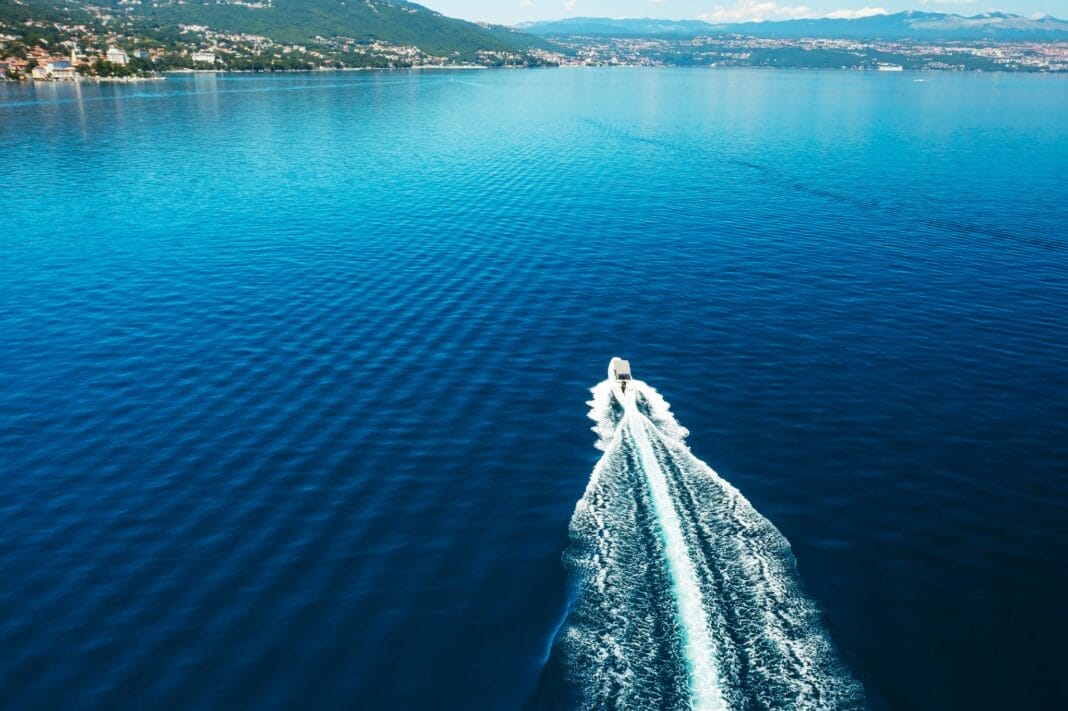
Efficiently managing fuel consumption is a critical skill for boaters, not only affecting the range of your vessel, but also impacting overall expenses. But unlike cars or trucks, calculating a boat’s fuel usage is more complex due to constantly shifting sea conditions.
In this comprehensive guide, we will dive into the intricacies of estimating and computing fuel consumption for boats, empowering you to make informed choices for an optimal boating experience.
Key Points for Fuel Consumption
Determining the amount of fuel your boat consumes holds several significant advantages:
Range Projection
Understanding your boat’s fuel economy–the amount of fuel needed per mile or nautical mile–helps anticipate the safe distance you can cover with a specific fuel capacity.
Cost Analysis
Calculating fuel usage offers valuable insights into operational costs, particularly when comparing different boats or marine engines for purchase.
Comparison Tool
Many boaters rely on fuel consumption charts or use boat tests as benchmarks for comparison. This allows for smarter decision-making when selecting a new boat or engine based on efficiency.
Due to the ever-changing nature of sea conditions, boat fuel efficiency is measured in gallons per hour (GPH). The metric used is pounds of fuel consumed per horsepower generated per hour, commonly referred to as ‘brake-specific fuel consumption.’
Keep in mind that gasoline weighs approximately 6.1 pounds per gallon, while diesel comes in at around 7.2 pounds per gallon.
The relentless hum of a well-tuned four-stroke gasoline engine can consume an impressive 0.50 pounds of fuel per hour for every unit of horsepower it churns out.
And let’s not forget the tireless diesel engine, which burns through 0.4 pounds of fuel per hour for each unit of horsepower it generates.
But be warned, these numbers only scratch the surface–factors like boat drag, sea conditions, and efficiency losses can greatly affect your fuel burn.
To navigate through this maze, use this formula to estimate your boat or engine’s fuel consumption:
GPH = (specific fuel consumption x HP) / Fuel Specific Weight
Gas = 6.1 lb. per gal
Diesel = 7.2 lb. per gal
The key to unlocking maximum horsepower lies in these formulas, optimized for the engine’s peak performance at wide-open throttle. But don’t be fooled–fuel consumption actually decreases during cruising speeds.
And with advanced electronic and direct fuel injection systems, efficiency is taken to a whole new level.
Unlocking Boating Performance
The roar of the boat motor and the number of miles it can go on a single gallon of fuel are crucial elements to consider while out on the water.
These two concepts, known as ‘boat motor pitch’ and ‘miles per gallon (MPG),’ hold the key to unlocking optimal boating performance. So pay attention, because your next adventure may depend on it.
Boat Motor Pitch
The pitch of a boat motor typically refers to the pitch of the boat’s propeller. The propeller pitch is the distance that the propeller would move in one revolution if it were moving through a solid, like a screw through wood. It’s measured in inches.
A higher pitch means the propeller is designed to move the boat further with each revolution, which can be efficient for speed but may reduce the engine’s revolutions per minute (RPM).
A lower pitch propeller will move the boat less distance per revolution but can increase RPM, potentially offering better acceleration and power for carrying heavy loads.
Choosing the right propeller pitch is crucial for optimal boat performance. It needs to be matched with the boat’s size, weight, and the motor’s power to ensure the engine operates within its recommended RPM range for peak efficiency.
Miles Per Gallon
MPG in the context of boats refers to the fuel efficiency of the boat. It indicates how many miles the boat can travel on one gallon of fuel.
Calculating MPG in boats is more complex than in cars due to variable factors like water conditions, boat weight, and hull design. A boat’s MPG can vary significantly based on these factors.
Higher MPG indicates better fuel efficiency, which is desirable for reducing fuel costs and environmental impact.
Boaters often look for ways to improve their MPG by optimizing the boat’s load, maintaining the engine, and using the boat at efficient speeds.
Assessing Fuel Usage and MPG
Begin by filling your boat’s tank to a precise level and recording the gallons added.
Then, set sail and take note of the distance traveled while considering sea conditions and cruising speed.
Upon return to the dock, refill the tank to the same level and record the additional gallons needed.
Using this information, you can determine the amount of fuel consumed during your trip and calculate your MPG using the formula: Distance Traveled / Gallons Consumed.
This equation is a valuable tool for determining the boat’s fuel efficiency and can be used to plan more efficient journeys in the future.
Many modern engines come equipped with gauges that display the total fuel consumption during a trip, as well as real-time updates on fuel efficiency to assist in saving fuel.
Maximizing Fuel Efficiency
The rumble of a boat motor is like a heartbeat to any avid boater. But did you know that how you trim your boat and manage fuel can make or break your entire experience on the water?
These two concepts are key players in maximizing performance and efficiency, leading you to smooth sailing and unforgettable adventures.
Boat Motor Trim
The trim of a boat motor refers to the angle of the outboard motor or stern drive in relation to the transom of the boat. Adjusting the trim changes the angle at which the hull meets the water.
Proper trimming can significantly affect the boat’s performance. When a boat is trimmed correctly, it runs more efficiently, achieving optimal speed and handling. The goal is to find the trim sweet spot where the boat planes smoothly on top of the water with minimal resistance.
Trimming the motor too low (in) causes the bow of the boat to sit lower in the water, increasing drag and reducing speed and efficiency. Trimming too high (out) can cause the propeller to ventilate, leading to loss of propulsion and potential engine damage.
Fuel Economy
Fuel economy in boating refers to how efficiently a boat uses fuel, typically measured in GPH or MPG.
Optimizing the trim of the boat can lead to better fuel economy. When a boat is properly trimmed, it reduces drag and allows the boat to move through the water with less effort and power. This efficiency translates into less fuel consumption for the distance traveled.
Additionally, a well-trimmed boat can also reduce engine strain and potentially extend the life of the motor.
Balancing Trim and Fuel Economy
Achieving the best fuel economy involves finding the optimal trim setting where the boat runs most efficiently. This setting varies depending on the boat’s design, load, water conditions, and speed.
Boaters often use trim tabs or power trim (adjustable with buttons or a lever on the throttle control) to adjust the trim level while underway, constantly fine-tuning for the best performance and fuel efficiency.
It’s important to monitor the boat’s performance indicators such as speed, RPM, and fuel consumption gauge, if available, to determine the most efficient trim setting.
Final Thoughts
Fuel up for success on the open seas by mastering your boat’s fuel consumption and miles per gallon. With this crucial knowledge, boaters can navigate their vessels with confidence and make informed decisions for efficient and cost-effective travels.
Don’t sail blindly–install a fuel monitoring system to track your consumption for ongoing management and worry-free long-distance cruises.
RELATED ARTICLES
Overview of the 2024 sea-doo rxp-x 325, overview of the 2024 parker offshore 2900 cc, what your boat’s beam is and why it matters, power cats of 2024: ultimate guide to the top power catamarans this year, navigating the heat: 10 safety tips for a safe boat ride in the summer heat, latest posts, don't miss, our newsletter.
Get the latest boating tips, fishing resources and featured products in your email from BoatingWorld.com!
What type of wood is used for pier pilings?
What is the difference between a dock and a floating pier, what is the proper technique for pulling a beginner wakeboarder, what does ‘no wake’ mean on a lake, what is the difference between wash and wake, highs, lows, and tidal know-how: a deep dive into ocean currents, 10 essential tips for fishing near private property, the benefits of using a drift sock: guidance for anglers, lure fishing: secrets for imitating live bait and attracting fish, explore the untapped depths of america’s best bass fishing spots, outboard motor maintenance: tips for keeping your engine in top shape, the essential boat tool kit: tools every boater needs, diy boat building: 8 tips and tricks for building your own vessel, the art of miniature maritime craftsmanship: ship in a bottle, antifouling paints: a guide to keeping your boat shipshape, beginner’s guide to standup paddle boarding: tips and techniques, boating for fitness: how to stay active on the water, kayak safety: how to stay safe on the water, anchoring in a kayak or canoe: how to secure your small boat, overview of the 2024 yamaha 252sd, overview of the 2024 tiara yachts 48 le, overview of the 2024 bass cat jaguar sts, 2024 pursuit os 445: an overview, 2024 aquila 47 molokai review, 2024 sea-doo switch 13 sport review, gear reviews, megabass oneten max lbo jerkbait review, fortress anchors fx-7 anchoring system review, fortress anchors fx-11 anchoring system review, fortress anchors commando anchor kit review, fortress anchors aluminum anchors review, stay in touch.
To be updated with all the latest news, offers and special announcements.
- Privacy Policy
- 2024 BOAT BUYERS GUIDE
- Email Newsletters
- Boat of the Year
- 2024 Freshwater Boat and Gear Buyers Guide
- 2024 Boat Buyers Guide
- 2024 Water Sports Boat Buyers Guide
- 2024 Pontoon Boat Buyers Guide
- Cruising Boats
- Pontoon Boats
- Fishing Boats
- Personal Watercraft
- Water Sports
- Boat Walkthroughs
- What To Look For
- Watersports Favorites Spring 2022
- Boating Lab
- Boating Safety
- Ultimate Boating Giveaway

Calculating Boat Fuel Consumption
- By Brett Becker
- Updated: September 30, 2019

Calculating a boats fuel consumption proves important to boaters for number of reasons. With knowledge of a boat’s fuel economy-how much fuel the boat burns per mile or nautical mile of travel-boaters can estimate the range they can safely expect to run.
Some boaters go as far as to develop a boat fuel consumption chart for their boat. You can use any Boating boat test as a model for this. Of course, you can also install a fuel consumption monitor if your boat’s engine does not provide a fuel consumption readout.
Additionally, knowing your boat’s fuel consumption provides a good idea of how much it will cost you to operate the boat. When shopping for a new boat or marine engine, fuel consumption provides a major basis of comparison.
Estimating Your Boat’s Fuel Burn
It’s a different story with a boat. Since sea conditions vary more widely than road conditions, the time it takes to cover a distance varies more, so fuel consumption is measured in gallons per hour. Also, while many engines have fuel flow readouts , the ability to estimate fuel burn while shopping for a boat or engine is important. You measure fuel efficiency in pounds of fuel used per horsepower developed per hour. The pros call it “brake-specific fuel consumption.” This makes it important to know that gasoline weighs about 6.1 pounds per gallon and diesel fuel 7.2 pounds per gallon.
On average, an in-tune four-stroke gasoline engine will burn about 0.50 pounds of fuel per hour for each unit of horsepower. Likewise, a well-maintained diesel engine burns about 0.4 pounds of fuel per hour for each unit of horsepower it produces. These figures don’t take drag of the boat, sea conditions, or efficiency losses through transmissions and bearings into account. But they provide an excellent relative difference between engines when shopping.
Confused yet? Look at the mathematical examples below, and a boat’s fuel economy should become clear.
Boat Fuel Consumption Formulas and Calculator
Below is the Formula to Estimate Maximum Engine Fuel Consumption.
GPH = (specific fuel consumption x HP)/Fuel Specific Weight
Constants | Gas | Diesel SFC: .50 lb. per HP | .40 lb. per HP FSW: 6.1 lb. per gal. | 7.2 lb per gal.
300-hp Diesel Engine Example GPH = (0.4 x 300)/ 7.2 = 120/7.2 = 16.6 GPH
300-hp Gasoline Engine Example GPH = (0.50 x 300)/ 6.1 = 150/6.1 = 24.5 GPH
Keep in mind that these formulas apply when the engine is making peak horsepower, which usually is near wide-open throttle. Fuel consumption will be decreased at cruising speeds. Also remember that engines with electronically-managed fuel injection and direct injection will yield higher fuel efficiency .
To apply these formulas to your boat, just plug in its horsepower rating and multiply it by the specific fuel consumption average, then divide the product by the fuel specific weight.
Another way is to take the total engine horsepower and divide it by 10 for gas engines or .06 for diesel engines. As you can see, this formula is simpler to calculate and easier to remember. You don’t even need a pencil and paper. It’s just not as accurate as the formulas above. The result represents the approximate gallons per hour the engine will burn at wide-open throttle. For example, a 150-horse engine will use about 15 gallons per hour. Though these figures represent averages and can vary from 10 to 20 percent, they’ll put you in the ballpark so you can plan a long-distance cruise without fear of running out of gas . You can also keep track of your boat’s fuel consumption by installing a fuel monitor.
- More: Engines , fuel consumption , How-To
More How To

Grady-White Pulls off Its Largest Raft-up Ever in Vieques, Puerto Rico

Installing Retractable Transom Straps

How to Choose a Trailer Winch

Best Non Skid Boat Deck Paint

Boat Test: 2024 Fjord 39 XP

2025 Alumacraft Competitor 205X

2025 Alumacraft Trophy 185X

2024 Alumacraft Timeline: Two Groups of Boaters x One Day Out on the Water

- Digital Edition
- Customer Service
- Privacy Policy
- Terms of Use
- Cruising World
- Sailing World
- Salt Water Sportsman
- Sport Fishing
- Wakeboarding
Many products featured on this site were editorially chosen. Boating may receive financial compensation for products purchased through this site.
Copyright © 2024 Boating Firecrown . All rights reserved. Reproduction in whole or in part without permission is prohibited.
Boat Fuel Consumption List
The fuel consumption of any yacht, can vary widely based on several factors including the yacht's size, engine type, cruising speed, and conditions under which it is operated.
The figures above are average calculated.
| Boat Name | Average Fuel Consumption (liters per hour) |
|---|---|
| Waterdream | 200-300L |
| Mangusta 108 | 990L |
| CRN 130 | 650L |
| Astondoa 102 GLX | 650L |
| Pershing 5X | 250L |
| Pardo 50 | 200L |
| Princess V72 | 400L |
| Mangusta 92 | 700L |
| Sunseeker Predator 84 | 600L |
| Leopard 27 | 550L |
| VanDutch 55 | 200L |
| Pershing 72 | 600L |
| Vanquish 82 | 350L |
| Pershing 90 | 900L |
| Vanquish 52 | 200L |
| Riva Rivale 56 | 250L |
Boat Fuel Cost Calculator
Data Policies
Social media, yachts zenith nautic s.l.
VAT Number: B56880875
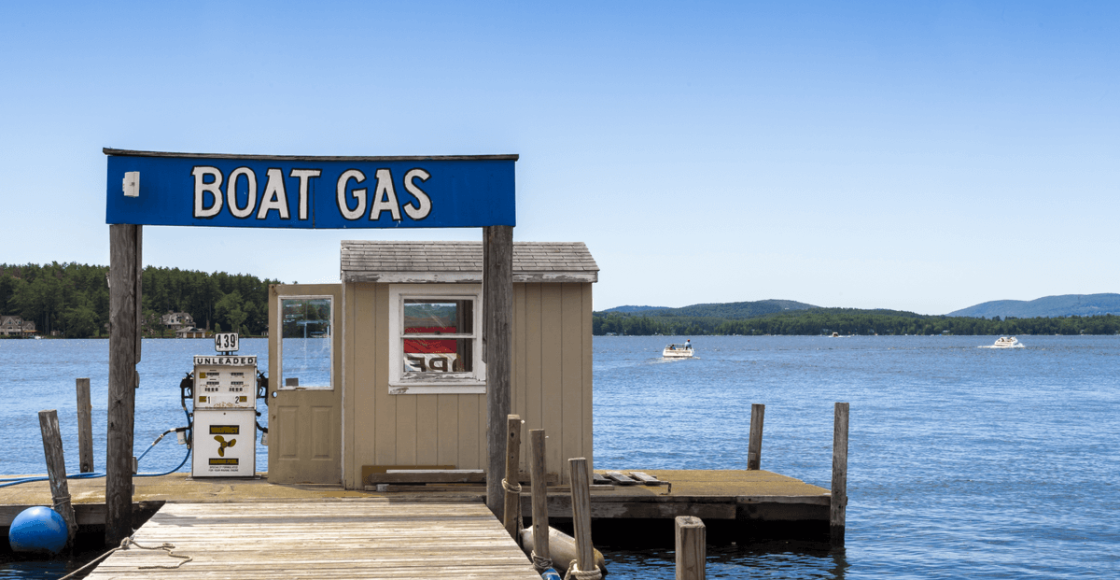
Boat Fuel Consumption: 5 Tips for Measurement, Efficiency, and Savings

Table of Contents
Last Updated on November 3, 2023 by Boatsetter Team
Boat fuel consumption can be a rather significant expense , and it’s one that goes up as gas prices rise. While it’s true that you have to pay to play, there are some measures boaters can take to cut down on this expense as the price of gas goes up.
Here are five tips to help save money on marine fuel for your boat:
- Lighten your load by removing excess gear and weight.
- When operating, bring the boat on plane, then leave the throttle alone.
- Understand how to properly trim your boat—if the bow seems high, trim it down.
- Ensure your boat’s propeller is the right size, material, and model to maximize performance.
- Keep the bottom of your boat’s hull clean and smooth.
Read on for further details and instructions on implementing each of these five tips, and be sure to use a boat fuel consumption chart to understand your engine’s ideal fuel economy.
Own a Boat? Learn How to Offset the Cost of Ownership by Listing on Boatsetter
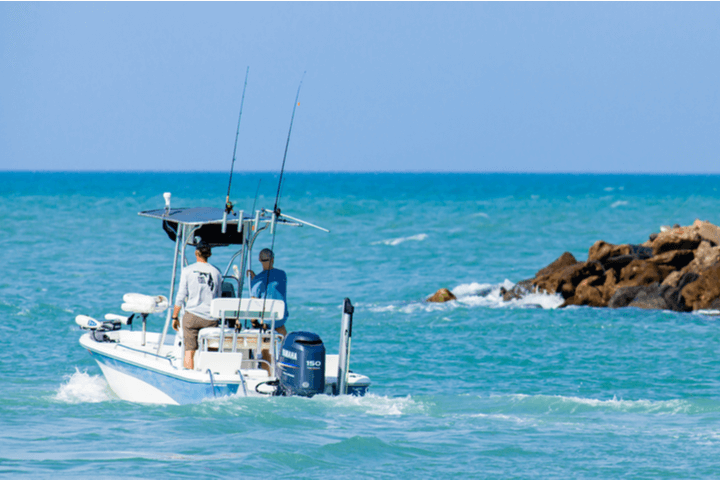
1. Lighten the Load
Many boats get loaded down over time without anyone even noticing, and the heavier your boat is, the less efficient it will be. While some gear is absolutely necessary, some other stuff may not be — and when added up it can weigh a ton.
- Think about removing that extra anchor rode, the big box of fishing weights, dishware that never gets used, and similar items from the boat.
- Also consider the water and waste tanks, if your boat has them. Can you get by with a half-full water tank? If so, you’ll shed eight pounds per gallon. W
- When is the last time you pumped out the waste tank? Again, you can remove a lot of weight from the boat by lowering its level.
2. Bring the Boat on Plane, then Leave the Throttle Alone
As is true with cars, boats tend to burn less gas at slower speeds. Boats are different, however, in that most get the worst fuel economy just below planning speed and the best economy just above it.
There are certainly some exceptions (such as some trawlers and some boats propped to go very fast) but as a general rule, the average outboard powerboat will break onto plane right around 3000 to 3500 RPM. And in most cases, this is where they get the best cruising fuel economy.
Note that on newer board your MPG may be displayed on a gauge at the helm . In this case, simply eyeball that gauge and you can see just when the boat’s getting its peak mileage.
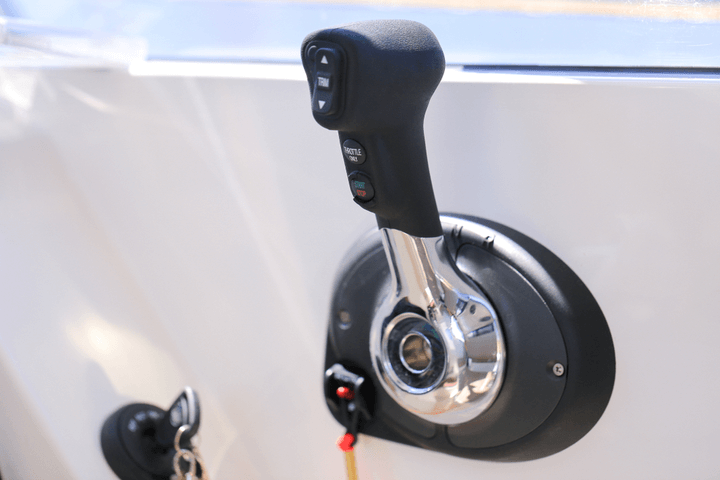
3. Tweak the Trim
Most boats run best on an even keel at a slight inclination of just two to four degrees. But depending on the boat’s design and the weight distribution of gear and passengers, you may need to adjust engine or drive trim and/or trim tabs to get it running this way.
If the bow seems to dig in try trimming the bow up a bit, and if you have to crane your neck to see over the bow, trim the bow down some.
4. Make Sure You Have the Right Propeller
Few boaters ever change propellers to see if they can gain a performance edge, but doing so can add several MPH to your cruising speed, which equates to more miles traveled for less gas burned .
Finding the ideal prop for your boat may take some experimentation; remember that your goal is to turn wide-open RPM in the middle of the manufacturer’s recommended range, and adding an inch of pitch will decrease rpm by about 200, while dropping by an inch will increase RPM by about the same amount.
Also note that switching from an aluminum propeller to a stainless-steel model can gain you one to three MPH, as well.
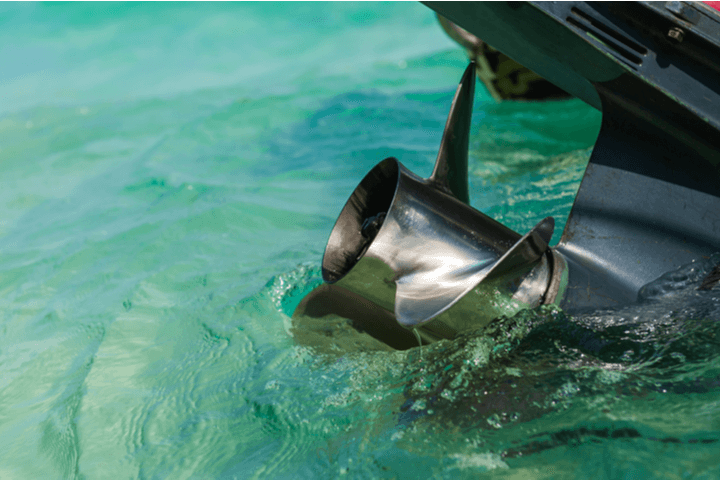
5. Keep the Bottom of Your Boat Clean
Few things sap speed and increase fuel consumption like a dirty bottom. While antifouling paint will keep most of it at bay, its effectiveness can drop with age. Plus, even a freshly-painted boat can develop a layer of scum or slime, and many boats have unpainted underwater surfaces like transducers that growth can adhere to.
- So, if your boat lives in a wet slip it’s a good idea to pull up to a sandbar or beach once in a while and gently scrub the bottom.
- If there are any areas where more substantial growth has attached, scrape them clean with a rigid object that won’t damage the surfaces, like a plastic putty knife.
Employ all of these tips, and your boat may burn one, five, or even 10 gallons less fuel on your very next trip. Every boat will be different, of course, but no matter how large or small it may be, at today’s gas prices those saved gallons can add up to some serious cash in the bank.
Earn an Average of $20,000 or More by Listing Your Boat for Rent on Boatsetter

With over three decades of experience in marine journalism, Lenny Rudow has contributed to dozens of boating and fishing publications and websites ranging from BoatU.S. Magazine to BDOutdoors.com. Rudow is currently the Angler in Chief at Rudow’s FishTalk , he is a past president of Boating Writers International (BWI), a graduate of the Westlawn School of Yacht Design, and has won numerous BWI and OWAA writing awards.
Browse by experience

Explore articles
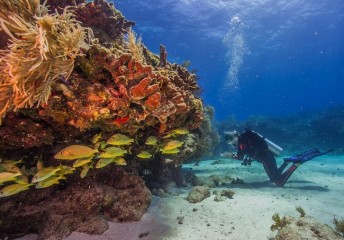
Rent a Boat and Explore Florida's Reefs and Wrecks this Winter
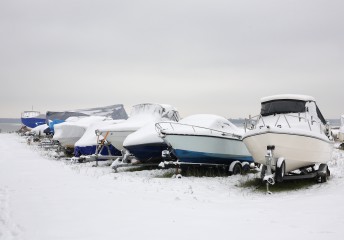
Can Boats be Stored Outside During the Winter?
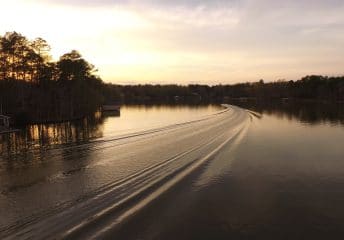
The 5 Best Lakes Around Savannah, Georgia
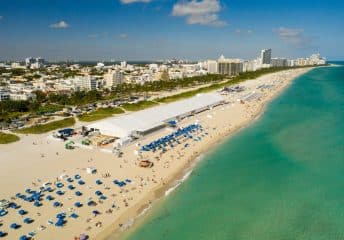
Art Basel Miami 2022: Event Guide
Alternatively,
- Register with Facebook
- Register with Google
Why Boatshed?
View all of your boats statistics in real time
Create a virtual "watch" on boats you're interested in
Refer a boat and earn up to 20% of the brokers commission
Language & Currency
Search our catalog, go direct, enter a boat reference.

Understanding Fuel Consumption for Boats: A Guide for Efficient and Safe Boating

When it comes to boating, efficient fuel management is just one piece of the puzzle. Equally important is safety planning, which encompasses understanding how much fuel your boat consumes, its range, and how to plan distances for trips. This ensures not only a cost-effective journey but also a safe one, preventing situations where you might run out of fuel far from help or a refuelling station. This guide aims to simplify the process of estimating your boat's fuel consumption, using Boatshed's platform features for an informed and secure boating experience. The Basic Calculation Fuel consumption for boats can be roughly estimated by looking at the engine's horsepower (HP). This fundamental knowledge helps in planning your trips efficiently and safely, providing a base for calculating fuel needs and range. Here's how you can estimate fuel consumption based on your boat's engine type: For Petrol (Gasoline) Engines: A petrol engine generally consumes about 30% of its horsepower in litres per hour. If your boat has a 100 HP petrol engine, it will likely use about 30 litres of fuel per hour. For Diesel Engines: Diesel engines are more fuel-efficient, typically using about 10% of their horsepower in litres per hour. Thus, a 100 HP diesel engine would approximately consume 10 litres of fuel per hour. Finding Your Boat's Horsepower for Accurate Planning Access the Boatshed Website: Go to the listing page of your own boat or a similar model if you're in the market for one. Look for the HP Field: The boat's listing will include a HP field, indicating the engine's horsepower. This is crucial for calculating your fuel consumption accurately. Perform the Calculation: With the horsepower identified, you can use the relevant percentage (30% for petrol, 10% for diesel) to estimate how much fuel your boat will use per hour. Incorporating Safety into Your Fuel Consumption Planning Assess and Plan for Your Trip: Knowing your boat's fuel consumption per hour, you can plan for the total amount of fuel needed based on the distance you intend to travel. Always add a safety margin to your fuel calculation to account for unforeseen circumstances or changes in weather conditions. Understand Your Boat's Range: Calculate your boat's range by considering its fuel consumption and the total fuel capacity. This will help you plan trips within safe distances, ensuring you can return or reach a refuelling point without running out of fuel. Plan Distances Wisely: Use the fuel consumption and range information to map out your trip, including potential refuelling stops. It's also wise to plan for alternate routes or safe harbours in case of emergency. Conclusion Understanding your boat's fuel consumption is not just about efficiency; it's a critical aspect of trip planning and safety. By leveraging the horsepower information on the Boatshed website and applying these calculations, you can ensure a safer, more efficient boating experience. Remember, these estimates provide a starting point for planning. For the most accurate advice and to ensure your safety on the water, always consult with a marine professional. More Help ? This guide serves as an introduction to basic fuel consumption calculations and safety planning. For comprehensive planning and professional advice, consulting with a marine expert is strongly recommended .

Share this Post
Latest post.

A Comprehensive Guide to Boat Fuel Consumption

The 2024 boating season is approaching. And you might already have planned for your boating and fishing trips on the West Coast waters.
One of the key aspects of enjoying marine adventures with a seamless and cost-effective experience is understanding the calculation of fuel consumption. Optimized fuel efficiency can significantly impact an overall boating expenditure.
In this blog, we will look at the essentials of boat fuel consumption calculation. Whether you are looking to repower your boat or buy a new vessel and outboard, these considerations will enable you to select the right one based on comparison.
Understanding the Basics
Different factors contribute to the boat engine's overall output and fuel consumption. You need to understand the vessel's specifications, such as the model type, engine type & power, boat weight, and carrying capacity. Other aspects like the hull design, trim, and the water conditions you navigate in different weathers play crucial roles.
How to Calculate Vessel's Fuel Burn
Sea conditions are unpredictable compared to roadways. Hence, the time to cover a certain distance varies often. Fuel consumption is measured in gallons used per hour. Many modern engines come with fuel flow readouts. Still, knowing how to estimate fuel consumption while purchasing boats for sale in Canada will be an added advantage.
Let's assume that you are using gasoline as fuel.
It weighs 6.1 pounds per 1 gallon. An adequately maintained FourStroke engine burns approx. 0.50 pounds of gasoline every hour per horsepower unit.
Look at the formula below to calculate maximum fuel consumption.
Fuel Consumption (Gallons Per Hour) = (Fuel Used x Horsepower) / Fuel Specific Weight
So, if you have a 300 HP engine operating with gasoline, fuel consumption would be,
GPH = (0.5 x 300) / 6.1
It means your engine uses 24.5 gallons of gasoline per hour. Remember that your engine and vessel should be well-maintained for an ideal performance. Also, the distance of the journey, water conditions, cruising speed, and some other aspects play a role in calculating how much fuel will be consumed in your trip.
Top Factors Influencing Fuel Consumption
1. boat engine.
It is the most vital part of any vessel. Suppose you have powered your boat with sterndrive or outboard motors for sale . Their type, horsepower, and engine condition significantly impact fuel consumption. Companies like Mercury Marine build advanced outboard motors like ProKicker trolling outboards, SeaPro commercial outboards, Pro XS performance outboards, FourStroke recreational outboards, and Verado premium-series outboards with excellent power-to-weight ratios, impressive fuel systems, and optimized fuel injection (on most models) to maximize performance from every drop of the fuel. When upgrading your vessel with a new engine, opt for a balanced performance with fuel-efficient technology that can provide long-term savings.

The type of boat engine, horsepower, and engine condition significantly impact fuel consumption.
2. Hull Shape
Different hull designs influence the boat movement on the plane differently. There are three main types of boat hulls: planing (flat bottom), semi-displacement, and full displacement. Suppose you bought a boat with a full displacement hull. In that case, you will experience higher fuel usage when you increase the boat speed. On the other hand, when you ride through high waves or rough water conditions on a semi-displacement or planing hull (flat bottom hull), fuel consumption is higher. However, fuel consumption decreases when the bow points down, even if the speed increases. A reliable fishing boat dealer in BC can help you understand more and select the proper boat hull based on the water conditions in your area.

Planing (flat bottom) or semi-displacement hulls' fuel consumption could be more efficient if the weight distribution is optimized. But not on rough waters with higher waves.
3. Drag and Friction
These factors can decrease fuel efficiency by 15-20% or even more. Several reasons play a part in forming friction and drag. When the engine alignment is improper and the bearings are in non-ideal operating condition, you will experience friction. The hull fouling and a non-maintained boat propeller increase drag. A wide-open throttle test enables you to compare the RPM. For example, a sudden drop in RPM from the regular average indicates some issues, and you might need help from a marine mechanic.

If bearings are in non-ideal operating condition, you will experience friction and lower fuel efficiency by 10-20%.
4. Weight Distribution
The vessel's weight, including the onboard members and cargo, affects the overall fuel consumption. An overloaded vessel or unevenly distributed weight impacts fuel efficiency. Some other factors influencing fuel usage are weather conditions, speed fluctuation, boat and engine condition, fuel quality, and your operating skills.
Tips to Increase/Maintain Fuel Efficiency
1. Keep your vessel and the motor well-maintained and in good shape.
2. Select the right boat propeller considering diameter, pitch, and material while buying a new one or upgrading the existing one.
3. Adjust the trim. It can help reduce resistance and, subsequently, fuel consumption.

The adjusted trim and right propeller selection can help reduce fuel consumption.
4. Use modern marine electronics in Canada , which can provide real-time insights, empowering you to fine-tune cruising speed for ideal fuel usage.
5. Plan your boating or fishing journeys considering weather conditions to ensure safety and get maximum performance.
Understanding and calculating boat fuel consumption is vital. You need a holistic consideration of influencing factors and a strategic approach to achieve optimum fuel efficiency. If you are looking for a reliable dealer offering new and used boats for sale , connect with Alberni Power & Marine. Our vast inventory of vessels, engines, marine electronics, and other marine essentials is available for your selection. Visit us today!
- Marine Electronics (3)
- Parts & Accessories (13)
- Marine Services (34)
- Mercury Outboards (18)
- Boat Engines (13)
- Propellers (2)

Calculating Boat Fuel Consumption
Key Takeaways:
- Weight, speed, hull condition, and engine type all affect boat fuel consumption.
- Gathering data on distance traveled, fuel consumption rate, and fuel tank capacity is important for calculating fuel consumption.
- It can be measured using metrics such as miles per gallon (MPG), horsepower per gallon (HPG), and emission ratings .
- Factors such as hull design, engine type, and boat weight/load impact fuel consumption , so choosing the right boat type can maximize fuel efficiency.
Then understanding how to calculate boat fuel consumption is essential. By gathering the necessary data and understanding fuel efficiency ratings, you can estimate fuel consumption for different boat types and specific activities.
This article will provide you with tips for reducing fuel consumption , empowering you to enjoy your boating adventures without worrying about running out of fuel.
Get ready to embark on your next journey with confidence!
Table of Contents
Factors Affecting Boat Fuel Consumption
There are several factors that can affect your boat’s fuel consumption. Understanding these factors is crucial for those who desire freedom on the open waters.
One factor to consider is the weight of your boat. The heavier your boat is, the more fuel it will require to move through the water. So, if you want to maximize your freedom and reduce fuel consumption, it’s important to pack light and only bring the essentials.
Another factor to keep in mind is the speed at which you choose to navigate. Going full throttle may give you a thrill, but it will also burn through fuel quickly. To conserve fuel and prolong your freedom on the water, try reducing your speed and enjoying a more leisurely pace.
Condition of your boat’s hull can impact fuel consumption. A clean hull creates less drag, allowing your boat to glide through the water more efficiently. Make sure to regularly clean and maintain your boat’s hull to minimize fuel consumption and maximize your freedom.
Type of engine you have plays a significant role in fuel consumption. Opting for a more fuel-efficient engine can help you save money and extend your time on the water. Consider researching and investing in an engine that aligns with your desire for freedom and cost-effectiveness.
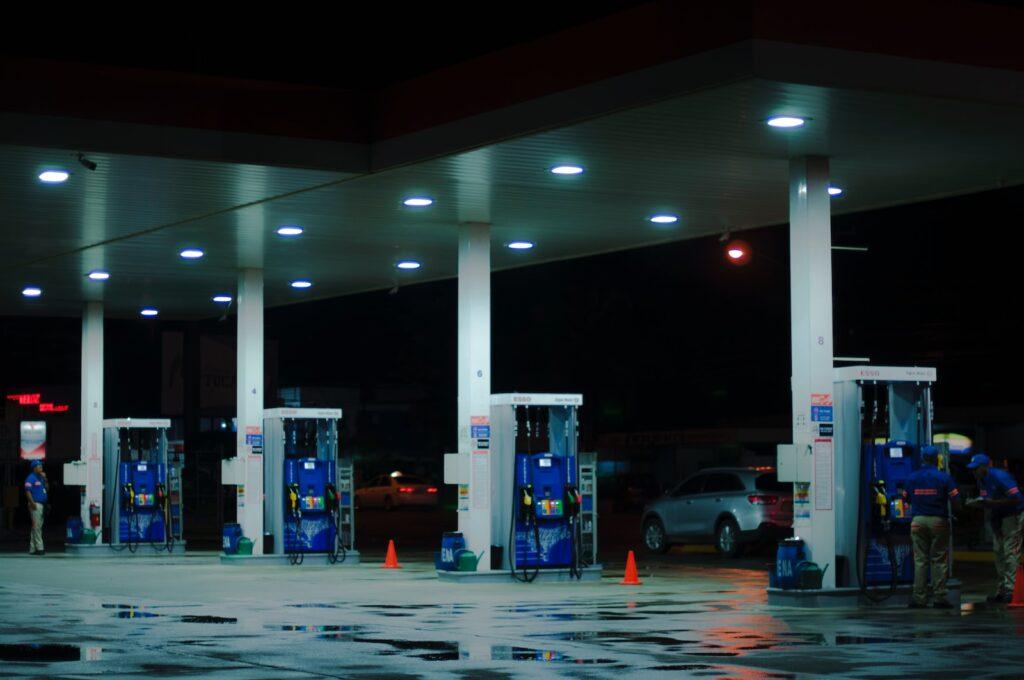
Gathering the Necessary Data
To gather the necessary data for calculating boat fuel consumption, there are a few key data elements you need to consider.
These include:
- The distance traveled
- The time taken
- The fuel consumed
You can collect this data through methods such as:
- Using a GPS to track your route
- Timing your journey
- Monitoring your fuel usage.
Key Data Elements
You should gather some key data elements to calculate your boat’s fuel consumption. Here are three important pieces of information you need to collect:
- Distance Traveled: Measure the distance in nautical miles that you plan to travel on your boat. This can be done using GPS or nautical charts.
- Fuel Consumption Rate: Determine how much fuel your boat consumes per hour of operation. You can find this information in your boat’s manual or by consulting the manufacturer.
- Fuel Tank Capacity: Know the total capacity of your boat’s fuel tank. This will help you calculate the number of refills needed for your trip.
Data Collection Methods
To accurately calculate your boat’s fuel consumption, you can gather the necessary data through various methods. Here are some options for collecting the data you need:
| Manual measurement | Keep track of fuel levels before and after each trip. | Simple and cost-effective. |
| Fuel flow meter | Install a device that measures the amount of fuel consumed. | Provides accurate and real-time data. |
| GPS tracking | Use a GPS system that calculates fuel consumption based on distance traveled. | Convenient and reliable for long journeys. |
These methods allow you to gather the required information to calculate your boat’s fuel consumption accurately. Choose the method that suits your needs and preferences. Remember, having the necessary data will give you the freedom to plan your boating trips more efficiently while managing your fuel consumption effectively.
Understanding Fuel Efficiency Ratings
The fuel efficiency ratings can help you determine how efficiently your boat uses fuel. Understanding these ratings is crucial for optimizing your boat’s fuel consumption and saving money in the long run. Here are three key points to consider:
- Miles per gallon (MPG): This rating measures the distance your boat can travel on one gallon of fuel. The higher the MPG, the more fuel-efficient your boat is. Aim for a higher MPG rating to maximize your fuel efficiency and minimize the number of refueling stops during your adventures.
- Horsepower per gallon (HPG): This rating indicates the power output of your boat’s engine per gallon of fuel consumed. A higher HPG means your boat’s engine is more efficient and can generate more power using less fuel. Keep an eye on this rating to ensure you’re getting the most out of each gallon of fuel.
- Emission ratings: In addition to fuel efficiency, it’s important to consider the environmental impact of your boat’s fuel consumption. Emission ratings indicate the amount of pollutants released into the air while your boat is in operation. Opt for boats with lower emission ratings to minimize your carbon footprint and contribute to a cleaner environment.
Understanding and monitoring these fuel efficiency ratings will empower you to make informed decisions about your boat’s fuel consumption, allowing you to enjoy your boating adventures with the freedom of knowing you’re using fuel efficiently and responsibly.
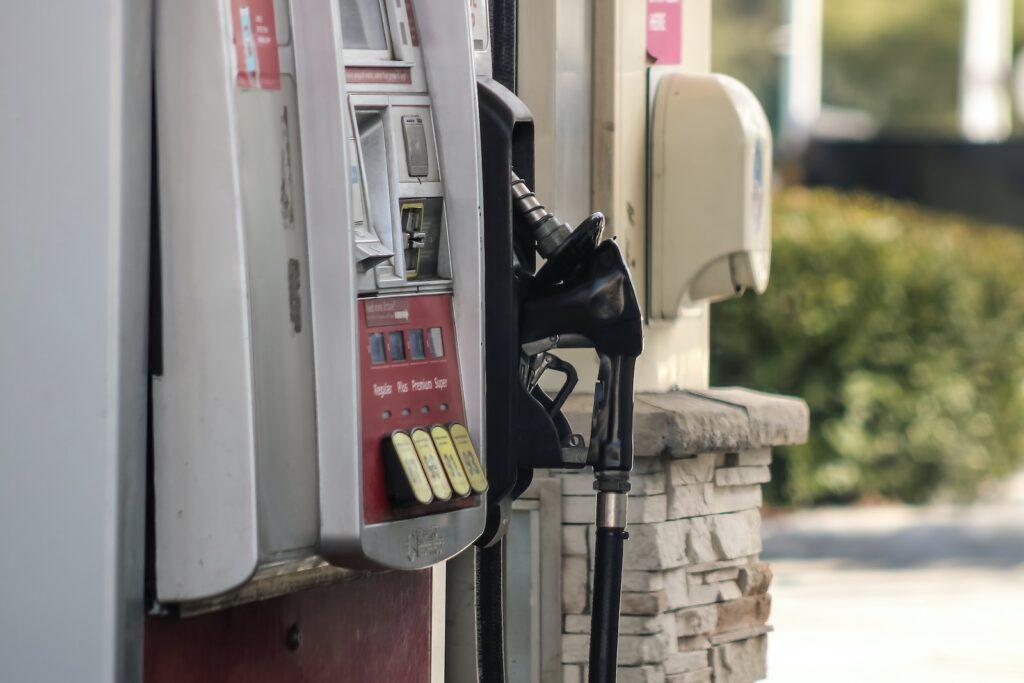
Calculating Fuel Consumption for Different Boat Types
When it comes to calculating fuel consumption for different boat types, there are a few factors to consider.
The efficiency of each boat type can vary greatly, with some boats being more fuel-efficient than others.
Additionally, factors such as boat size, weight, engine power, and speed can also affect fuel consumption.
Efficiency of Boat Types
For optimal fuel efficiency, consider the type of boat you’re using and the conditions you’ll be navigating in. Different boat types have varying levels of efficiency, so it’s important to choose the right one for your needs.
Here are three things to consider when calculating fuel consumption for different boat types:
- Hull Design : Boats with a planing hull, like powerboats and speedboats, are designed to ride on top of the water, reducing drag and increasing fuel efficiency. On the other hand, boats with a displacement hull, like sailboats and trawlers, are designed to displace water as they move, making them more fuel-efficient at lower speeds.
- Engine Type : The type of engine your boat has can also affect fuel consumption. Outboard motors are generally more fuel-efficient compared to inboard engines, as they’re lighter and have better power-to-weight ratios.
- Weight and Load : The weight and load of your boat can impact fuel consumption. A lighter boat will require less power to move through the water, resulting in better fuel efficiency. Similarly, carrying excess weight or overloading your boat can increase fuel consumption, so it’s important to only carry what’s necessary.
Considering these factors will help you choose a boat type that suits your needs while also maximizing fuel efficiency.
Enjoy the freedom of the open water while minimizing your fuel costs!
Factors Affecting Consumption
Consider three main factors that can affect fuel consumption when calculating fuel consumption for different boat types.
The first factor is the boat’s weight. Heavier boats require more energy to move through the water, resulting in higher fuel consumption.
The second factor is the boat’s speed. Faster speeds typically require more power, leading to increased fuel usage.
Lastly, the boat’s hull design plays a crucial role. Boats with sleek and streamlined hulls have less resistance in the water, allowing them to glide more efficiently and use less fuel. On the other hand, boats with bulky and inefficient hull designs experience greater resistance, resulting in higher fuel consumption.
Estimating Fuel Consumption for Specific Activities
If you want to accurately estimate fuel consumption for specific activities, it’s important to take into account factors such as speed, distance, and engine efficiency. By considering these factors, you can better plan your boating adventures and ensure you have enough fuel for the journey.
Here are three things to keep in mind when estimating fuel consumption for specific activities:
- Activity Type : Different boating activities require different amounts of fuel. For example, if you’re planning on cruising at a steady speed, your fuel consumption will be lower compared to activities that involve frequent accelerations or high speeds.
- Route Planning : The distance you plan to travel plays a significant role in fuel consumption. It’s essential to map out your route and account for any detours or diversions. By estimating the total distance, you can calculate how much fuel you’ll need for the entire trip.
- Engine Efficiency : The efficiency of your boat’s engine can greatly impact fuel consumption. Regular engine maintenance, such as tuning and cleaning, can improve its efficiency and help you save on fuel costs.
Tips for Reducing Boat Fuel Consumption
To maximize fuel efficiency, there are several steps you can take. Prioritize maintaining the optimal speed for your boat. By keeping your boat at the right speed, you can reduce fuel consumption and enjoy longer journeys on the water. Avoid unnecessary acceleration and maintain a steady pace to conserve fuel.
Another tip is to plan your trips in advance and choose the most direct routes. Avoid unnecessary detours or zigzagging, as they can increase fuel consumption.
Properly maintain your boat. Regularly check and clean the hull to reduce drag and improve fuel efficiency. Keep an eye on the engine and ensure it’s running smoothly, as a well-maintained engine consumes less fuel.
Consider installing a fuel flow meter to monitor your boat’s fuel consumption in real-time. This can help you adjust your speed and optimize your fuel efficiency.
Reduce the weight on your boat by removing any unnecessary items. Lightening the load can improve your boat’s performance and decrease fuel consumption.
It is also important to keep in mind that fuel consumption can vary depending on a number of factors, such as the weight of the boat, the type of water it is being used in, and the speed of the boat. Therefore, it is important to take all of these factors into consideration when calculating your boat’s fuel consumption.
There are several factors that affect the amount of fuel a boat consumes. The size of the boat, the type of engine, the load being carried, the speed of the boat, the type of fuel, and the weather conditions all play a role in the amount of fuel consumption. If You think its not sufficient see how to build boat fuel tank to make it larger.
Size of the Boat
The size of the boat is an important factor in fuel consumption. Larger boats typically consume more fuel than smaller boats due to their greater weight and increased drag.
Type of Engine
The type of engine is another factor that affects fuel consumption. Inboard engines typically consume more fuel than outboard engines due to their greater weight and size. Additionally, diesel engines tend to consume more fuel than gasoline engines.
Load Being Carried
The amount of weight being carried by the boat will also affect fuel consumption. If a boat is carrying a heavy load, it will require more fuel to move the extra weight through the water.
Speed of the Boat
The speed of the boat will also affect fuel consumption. The faster the boat is travelling, the more fuel it will consume.
Type of Fuel
The type of fuel being used will also affect fuel consumption. Different fuels have different levels of efficiency, so it is important to use the most efficient fuel possible in order to maximize fuel economy.
Weather Conditions
The weather conditions can also have an effect on fuel consumption. If the boat is travelling against the wind, it will require more fuel to maintain speed. If the water is rough, it will require more fuel to combat the waves.

How much fuel does a boat use per hour?
The amount of fuel a boat uses per hour depends on a variety of factors, such as the size and type of the boat, the power of the engine, the load it is carrying, and the speed it is travelling. Generally, a small outboard motorboat uses about 1 to 2 gallons of fuel per hour, while a larger motorboat with an inboard engine can use up to 20 or more gallons of fuel per hour.
Type of fuel used can also affect the amount of fuel consumed. Boats that use gasoline typically use more fuel than those that use diesel, as diesel engines are more fuel-efficient. The cost of fuel also needs to be taken into consideration, as higher-grade fuels are more expensive but can improve fuel economy. Efficiency of the boat’s engine and the condition of the propeller can also have an effect on fuel usage.
It’s important to note that these figures are approximate and can vary significantly based on the factors mentioned earlier. To get a more accurate estimate of your boat’s fuel consumption, it’s best to consult your boat’s owner’s manual or engine specifications, which typically provide specific fuel consumption rates at different speeds or RPM settings. Additionally, monitoring fuel consumption during your trips and keeping a record can help you determine your boat’s average fuel usage.
How can I calculate the fuel consumption of my boat?
To calculate your boat’s fuel consumption, you can start by noting the engine’s rated fuel consumption in gallons per hour (gph) or liters per hour (lph) at various RPM settings. Multiply the engine’s rated fuel consumption by the number of hours you plan to run the boat. Keep in mind that factors such as speed, load, and weather conditions can affect the actual fuel consumption.
Is there a formula to estimate boat fuel consumption?
Is there a formula to estimate boat fuel consumption? While there isn’t a universal formula for estimating boat fuel consumption, you can use a rough estimate by considering your boat’s engine specifications, including the rated fuel consumption at different RPMs, the boat’s cruising speed, and the duration of your trip.
How can I improve fuel efficiency and reduce boat fuel consumption?
To improve fuel efficiency and reduce fuel consumption, you can follow these tips: maintain your boat’s engine and propeller in good condition, keep the boat’s hull clean to reduce drag, avoid excessive speed and rapid acceleration, trim the boat properly to minimize resistance, plan efficient routes, and reduce unnecessary weight onboard.
Related posts:
Leave a Reply Cancel reply
Your email address will not be published. Required fields are marked *
Save my name, email, and website in this browser for the next time I comment.

- Charter & Brokerage
- Yacht Design & New Builds
- Tenders & Toys
- Superyacht Events Calendar
- Career & Training
- Departments
- Superyacht Crew Finances
- Sustainability
- Shipyards and Marinas
- Health & Wellbeing
- Polar Region
- Our Services
- Meet the Team
Yachts And Fuel – How Much Do They Really Consume?
.png)
Fuel is one of many annual running costs of a yacht. Not only does the yacht need fuel for cruising; the generators require it to keep the vessel running while at anchor and underway. As well as this, many of the water sports toys require it too.
Some yachts cross the Atlantic Ocean twice a year between the Mediterranean and Caribbean while others embark on world cruises. That equates to a lot of fuel.
So How Much Do They Really Consume?
According to the Yachting Pages, the longest Superyacht in the world, 180m M/Y Azzam, holds 1,000,000 litres of fuel. To put it into perspective, that is the equivalent of filling a regular hatchback car 23,800 times. Or, six Boeing 747 commercial airliners.
West Nautical’s Vessel Manager, Tony Hildrew, a former Yacht Chief Engineer said:
“Fuel is the single biggest expense when it comes to yacht operations, it is estimated that the global spend on fuel is around $150bn annually however this shouldn’t put you off, there are a number of ways to ensure your fuel consumption doesn’t get out of hand. Implementing a Ships Energy Efficiency Management Plan or SEEMP for short is a great way to keep fuel costs down without compromising on your cruising experience.”
Each yacht will consume fuel differently for a number of reasons. It could be the size and make of the engines. Or, how often the yacht is using generators. As well as the number of tenders and water sports toys on board that require fuel. For example, if the yacht is out at anchor and running on generators 90% of the time, the fuel consumption will be much higher than a yacht that is in a marina at night and connected to shore power and water.
Another factor that will affect fuel consumption is the yacht’s itinerary. This is because the sea conditions will impact how much fuel the engines consume.
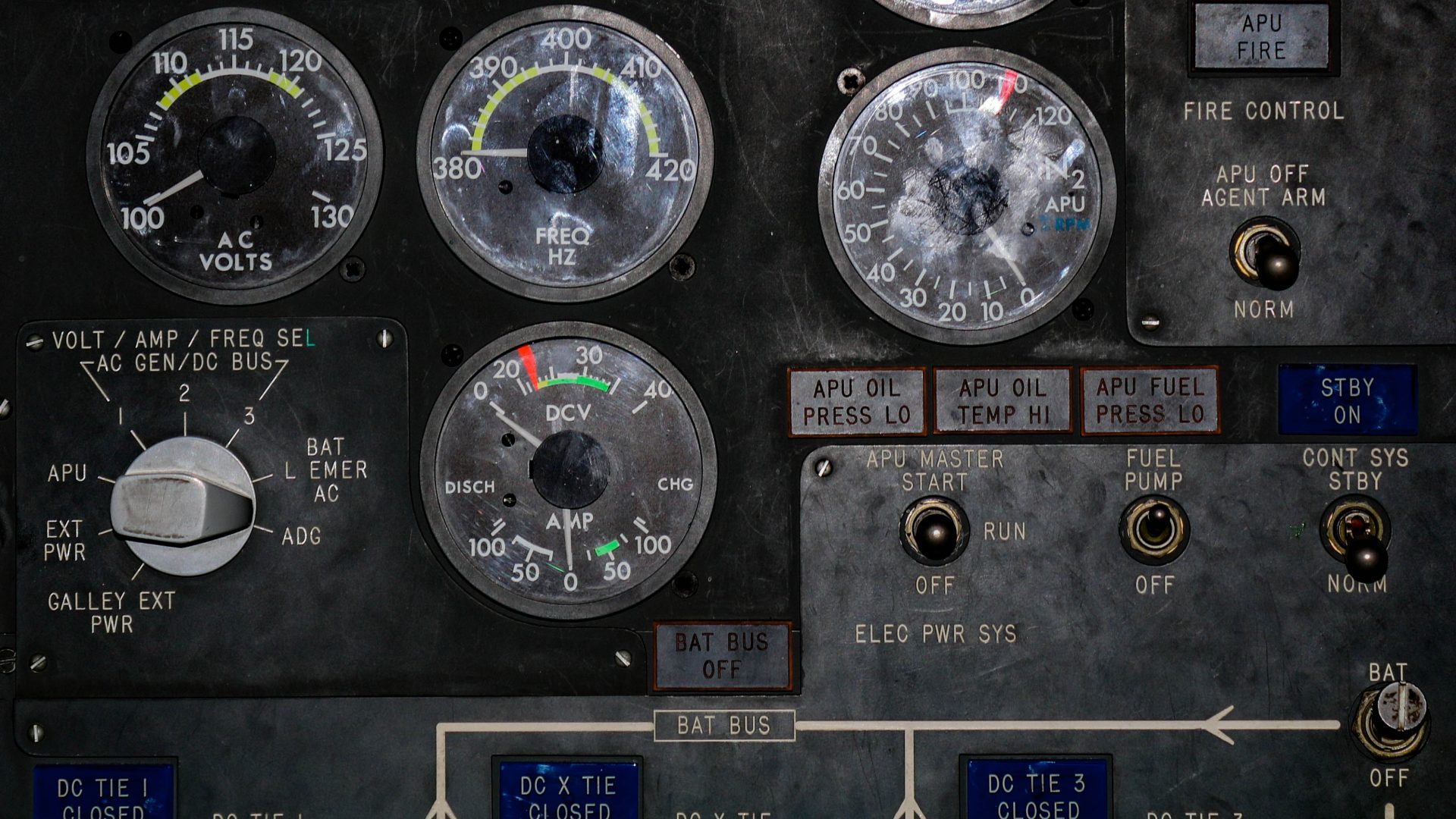
How Is Consumption Measured?
You will be able to input the start and ending points of your cruise on the map. This will automatically update the distance table. The next step is to enter the speed, fuel consumption and cost of fuel per litre to determine the cost of the trip.
Here is an example: A fast 30m yacht cruising at 20 knots will consume roughly 400 – 500 litres depending on the engine type. This would equate to the total consumption of 2500 litres for a distance of 100 nautical miles.
Another example is, a 70m yacht looking to travel 100 nautical miles with the engines burning 1000 litres per hour would add up to a total consumption of 8335L for that passage. Depending on where the yacht bunkered, the estimated cost with the price per litre being on the low end at €0.90 per litre would cost a total of €7501.50. An example of a 100 nautical mile passage would take you from Saint Tropez to The North Coast of Corsica.
How Much Does It Cost?
Fuel prices fluctuate depending on which country you bunker in and some places you bunker offer tax free fuel such a Gibraltar and Montenegro. Fuel prices can vary but typically costs between €0.80 and €1.30 per litre.
Yacht charter, sales and management company West Nautical added:
“Fuel costs should be at the top of any yacht owner and captain’s minds for two reasons: to minimise costs as well as reduce the environmental impact of burning unnecessary fuel. The superyacht charter market, more than most other markets, relies on pristine waters for their guests to enjoy their holiday. If the oceans in popular charter destinations are not maintained, it will decrease the demand for yacht charter and therefore the revenue for owners.” “If you are looking for expertise in operational management and engineering in order to plan a SEEMP, West Nautical would be delighted to assist.”
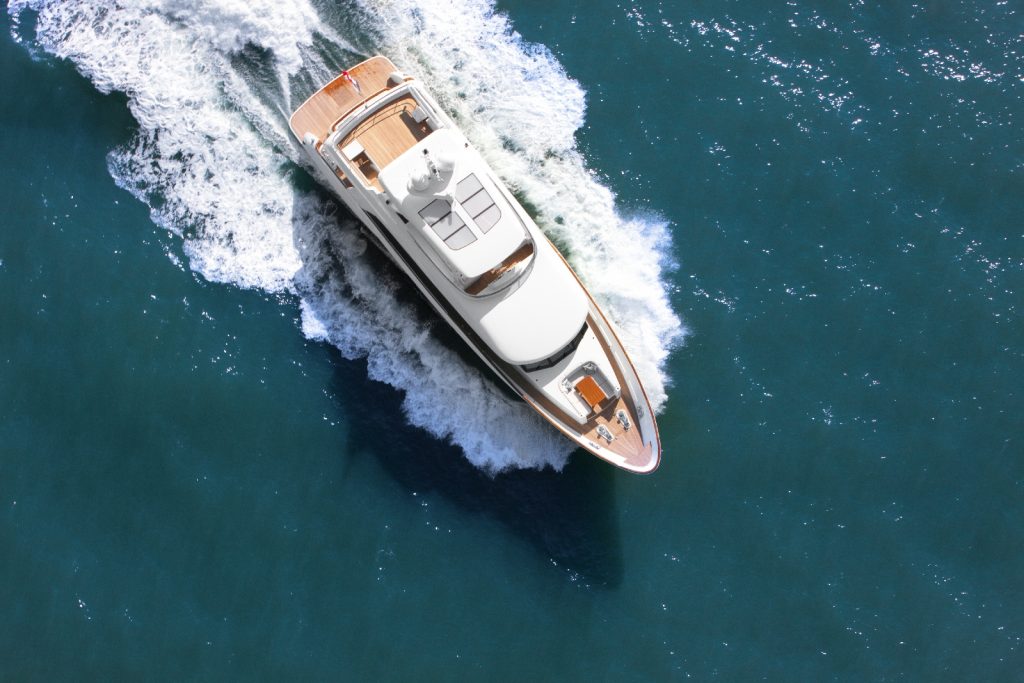
About West Nautical
West Nautical sell, charter and manage superyachts from their head office in Newcastle upon Tyne. The business currently employs a team of 21 staff throughout their offices based in the UK, Russia, France and Cyprus.
Since their inception over 25 years ago, West Nautical have become recognised as one of the most respected, trusted, knowledgeable and accountable professional services firms in yachting – largely due to their relentless determination to act in our clients’ best interests. Their approach and attitude is transparent, refreshing and focused on providing value-added services delivered simply, elegantly and affordably.
Visit West Nautical’s website here: https://westnautical.com
For Media enquiries please contact sarah.mackenzie@westnautical.com
To keep up to date with the latest Superyacht Content News, click here .
Sign up to our Newsletter below:
Newsletter Signup
- Your Name First Last
- Your Email *

West Nautical
Related articles, tender of the week: maori 54 xl, the below deck effect. reality tv & the world’s top 1%, a scotland trip for superyacht tenders. trying out the nautique range, tender of the week: maori 54.

Superyacht Content
Social media influencer and digital brand expert.
Superyacht Content brings you the latest in social news for the superyacht industry.
Keep up to date with us across our social channels, and don’t forget to hit that share button!
- Superyacht News
- Superyacht Jobs
- Superyacht Marketing
Join our Newsletter
Copyright © 2023 Superyacht Content | Website Design by Zonkey
Privacy | Credits | Get in Touch

About The Fuel Consumption Calculator

Let’s face it. Boating is fun, but filling up at the marina (or even from your own fuel cans) can get expensive quick. Especially with the high cost of fuel these days.
It would be nice to know if there was a simple way to reduce your fuel consumption without cutting back on your boating enjoyment. Fortunately, there is and that is exactly why I created the free boat fuel consumption calculator.
With it, you can calculate your engine fuel consumption and the cost of fuel for a single trip and for the entire season. You can even do “what if” comparisons to see how a change in operating speed could save you money at the pump. Having an understanding of your boat’s basic fuel consumption curve will help you find that operating speed “sweet spot” where you’re still having fun and getting where you need to go, but with a little extra cash in your pocket.
Get the Fuel Calculator
Fill out the form below to get immediate access to the Fuel Consumption Calculator.
By clicking the Submit button below, you will get immediate access to the Fuel Consumption Calculator and agree to receive the monthly BoaterInput newsletters. We promise, no spam or junk mail, just valuable boating information and you can unsubscribe anytime.

Why Did I Build This Tool?
To be honest, I built this tool because no one else has built one. And, because I think knowing your fuel consumption is helpful in several situations:
- When your buddies are offering to “help” with gas and want to know how much to chip in. Now you can easily let them know what the actual tab is (which is likely more than they were anticipating)
- You are interested in reducing the cost of using your boat. This tool will help you figure out how small changes in your operating speed can add up to substantial savings.
- You are wondering how big of a boat to buy . A 21′ bass boat with a 250 HP engine would be cool but my smaller boat with a 150 is much more economical. In fact, the fuel consumption calculator estimates that I save over $800 a year by going with 100 fewer ponies. That equates to several more rod/reel combos and far fewer trips lugging gas down to the dock.
- You want to better understand the ongoing costs of boat ownership. Are you someone who likes to follow a household budget? Or are you contemplating buying your first boat and are wondering if you can afford the ongoing expense? This tool will help you plan your budget to minimize surprises.
So, if any of these reasons interest you, click on button to request access to the fuel consumption calculator. Best of all, it is completely free!

How Did I Design The Tool?

In order to estimate fuel consumption, I needed three inputs and a little algebra.
The first input was fuel consumption per horsepower . As it turns out, gas engines consume approximately 0.5 lbs of fuel per horsepower per hour at wide open throttle (WOT). Diesel engines consume slightly less (0.4 lbs). This assumes a properly running, well-tuned engine. Of course, unlike meat and produce, you don’t buy gas by the pound but by the gallon. So, to convert fuel consumption into gallons, you simply divide by the fuel weight of 6.1 lbs per gallon for gasoline and 7.2 lbs for diesel. But this still doesn’t get us where we need to be. That is because, unless you are a boat racer, most do not run their engine at WOT 100% of the time. Therefore, we need to account for reduced fuel consumption at lower RPM ranges.
This takes us to our second input – the relative rate of fuel consumption across the RPM band . For this, I examined the fuel consumption curves for a variety of engine brands – including Mercury, Yamaha, Honda and Suzuki Outboards. I even looked at data for MerCruiser and Volvo sterndrive (also known as I/O) engines. For each engine type, I compared the fuel consumption curves for multiple engine sizes ranging from 25 HP to 425 HP for Outboards and 3.0L to 8.2 L for Sterndrives.
The third, and final, input needed is user-supplied data on how long, how often and at what speed you typically operate your engine(s) . For this last item, I break things down into four categories for simplicity: Idle speed (between 500 and 1,000 RPMs) that is often used when docking or going through no-wake zones, Half Throttle (around 3,000 RPMs) which is often enough to hold a boat on plane, Three-Quarters throttle (~4,500 RPMs) and then WOT (~6,000 RPMs) .
In examining all of this data, I discovered two key things: 1) though the total fuel consumption varies by engine size, the relative rate of consumption is fairly constant. In other words, whether you are looking at a 25 HP or 250 HP, the proportion of fuel consumed at various RPM ranges in comparison to WOT does not vary much. And 2), the rate of fuel consumption is not linear across the RPM band. For example, at half throttle (roughly 3,000 RPMs), you are only consuming about 30% of the fuel that you would at WOT (approximately 6,000 RPMs). At three-quarters throttle, the rate is about 60%. This is significant because it tells you that the last quarter of the throttle is far less efficient and key to saving you money on fuel.
Try my free tool and find out for yourself how small changes in your boat usage can really add up to big savings.
How to Use the Fuel Consumption Calculator
Using the tool is very simple.
The first thing you need to do is choose whether you want to estimate “Fuel Consumption only” based on your current usage OR “Also do What If Comparisons” to see how changes in your operating speed impacts your fuel economy.
Next, enter your engine parameters (size, number of engines, gas vs. diesel) and usage frequency (number of trips per year and average engine running time per trip) along with your average price for fuel.
Finally, specify the approximate percent of time you use your engine per outing at Idle speed, Half throttle, Three-Quarters Throttle and WOT. If you chose to do “What Ifs”, you will need to specify the percent of time based on your current usage and an alternative usage scenario.
The calculator will then estimate the Gallons consumed per Outing , the Fuel Cost Per Outing , and the Total Fuel Cost Per Year . If you ran a “What If” scenario, you will also see the potential savings .
Give the tool a try and let me know what you think.

Be a Beta Tester…And Give Me Your Feedback!

This is a brand-new tool and unlike anything else available online.
It is still in beta-testing mode and so I would love it if you tried it and gave me your feedback. Are the results consistent with your experience? Is it easy to use? Is there anything else you would like to see? If you are willing to share your experience, I’ll continue to “tweak” the tool to make it even better.
My goal is to help boaters save money and increase their boating enjoyment. After all, if you are spending less on gas, that leaves more for tackle, gear and accessories, right?
Click on the button to access my free tool and let me know what you think.
what our members are saying about their boats
“This boat gives you a fast, dry, and smooth ride.” (Overall Rating: 10)
“Wide beam and large cockpit. Love the open feel.” (Overall Rating: 9)
“The Formula brand is a well-built boat that uses high end components and has things such as fume detection for the bilge and other items like that are not seen on other brands. The seats are very comfortable and both interior and exterior are holding up extremely well. The boat handles great and has a very solid ride.” (Overall Rating: 10)
“Not many people are very familiar with Bryant but they build a quality boat that is a bit more affordable than some of the other premium names. I have had this boat 5 years now and it looks great and rides well.” (Overall Rating: 9)
“It’s the best all-weather boat I’ve owned for lakes. Handles just about anything that’s marginal to get back to the ramp safely. And plenty of storage room, actually it could be too much room at times.” (Overall Rating: 10)
“When I bought it , it was probably the best deal one could find for a fiberglass bass boat with absolutely no wood in it. The boat and Yamaha 70 have performed flawlessly for 12 years.” (Overall Rating: 10)
“This model falls into the category that most salt water fishermen refer to as “Bay Boat”. It has a center console which provides tremendous stability and a deeper hull than a “flats” boat for smoother ride on choppy water. The boat is made for fishing and has very few comfort features for cruising. It is not my favorite hull because it draws a little more water than some of the other shallow water bay boats such as Pathfinder.” (Overall Rating: 9)
“Great boat, solid ride… great bay boat for fishing. Fast with Yamaha 300!!” (Overall Rating: 10)
“Excellent high-end Pontoon Boat with a 400hp R Mercury outboard Racing motor. Too nice to be a Pontoon Boat. Rear twin electric recliners.” (Overall Rating: 9)
“We had a lot of fun using this boat the past summer. it can accommodate nine persons, has comfortable seating for all passengers, is easy to board for both passengers and water skiers, handles well in rough water, is easy to launch and dock, looks great on the water and drew lots of compliments from all who saw it on the water.” (Overall Rating: 10)
“Great boat and a great price point. Carolina flare and deadrise makes for an exceptionally dry boat which I would expect from any Carolina boat builder that builds primarily for the Atlantic. This is not a shallow draft boat for its size, however….I would say it drafts in 12″ +.” (Overall Rating: 8)
Join Our Community
Sign up for our newsletter and get access to the most recent content, as well as opportunities to participate in community surveys.
Help us grow our knowledge base
If you are looking to purchase a boat, be sure to check out the boating reviews left by other boat owners.
If you already own a boat, be sure to share your experiences by submitting a review so others will benefit from it.
BoaterInput.com
Email: [email protected]

Follow us on:
Terms Of Use | Privacy Policy | Copyright Left Brain Marketing, 2023

How Much Fuel Does a Boat Use Per Hour? A Comprehensive Guide
Boating enthusiasts and boat owners alike often wonder how much fuel their boat uses per hour.
The answer to the question of how much fuel does a boat use is not straightforward, as fuel consumption can vary depending on several factors. Boat size, weight, engine type, and speed are just a few examples of the variables that can affect fuel usage.
Understanding how much fuel a boat uses per hour is crucial for boaters who want to plan their trips and budget accordingly. Furthermore, knowing how to calculate fuel consumption can help boaters make informed decisions when shopping for a new boat or engine.
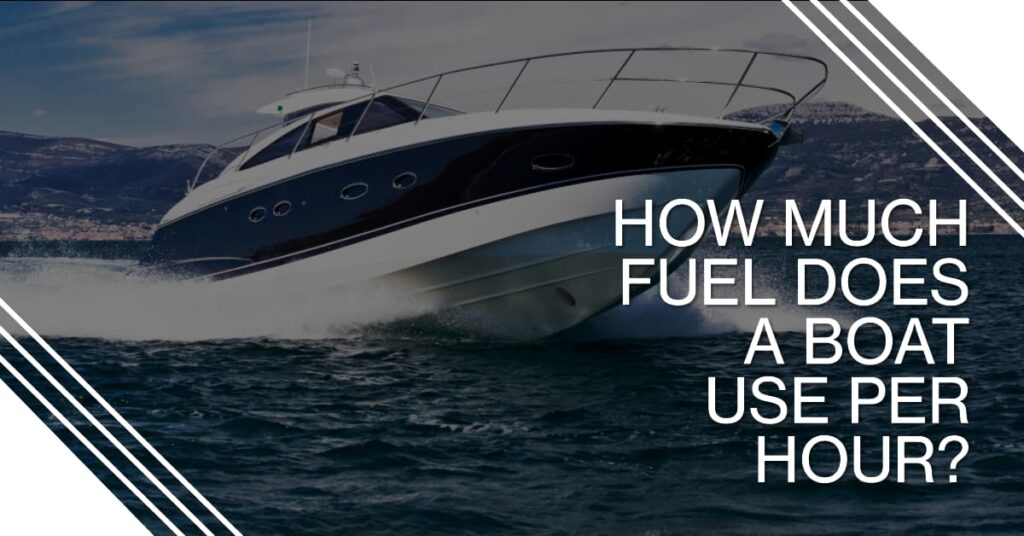
In this article, we will explore the factors that influence fuel consumption in boats and provide tips on how to estimate fuel usage. By the end of this article, readers will have a better understanding of how much fuel their boat uses per hour and how to optimize their fuel consumption.
Understanding Fuel Consumption in Boats
Boat fuel consumption can vary significantly depending on various factors. Understanding these factors is crucial to estimate how much fuel a boat will consume in a given period. This section will discuss some of the critical factors that affect fuel consumption and how to calculate it.
Factors Affecting Fuel Consumption
- Boat Type and Size: The type and size of the boat have a significant impact on fuel consumption. Smaller boats tend to consume less fuel than larger boats. For example, a 20-foot boat will consume less fuel than a 40-foot boat with the same engine.
- Engine Type and Size: The type and size of the engine also play a crucial role in fuel consumption. A larger engine will consume more fuel than a smaller engine, even if both are of the same type. Gasoline engines tend to consume more fuel than diesel engines.
- Weight: The weight of the boat and its load can affect fuel consumption. A heavier boat will require more fuel to move than a lighter boat.
- Speed: The speed at which the boat is traveling can significantly impact fuel consumption. Boats that travel at higher speeds tend to consume more fuel than boats that travel at lower speeds.
- Weather and Water Conditions: Weather and water conditions can affect fuel consumption. Boats traveling against the tide or in rough water will consume more fuel than boats traveling with the tide or in calm water.
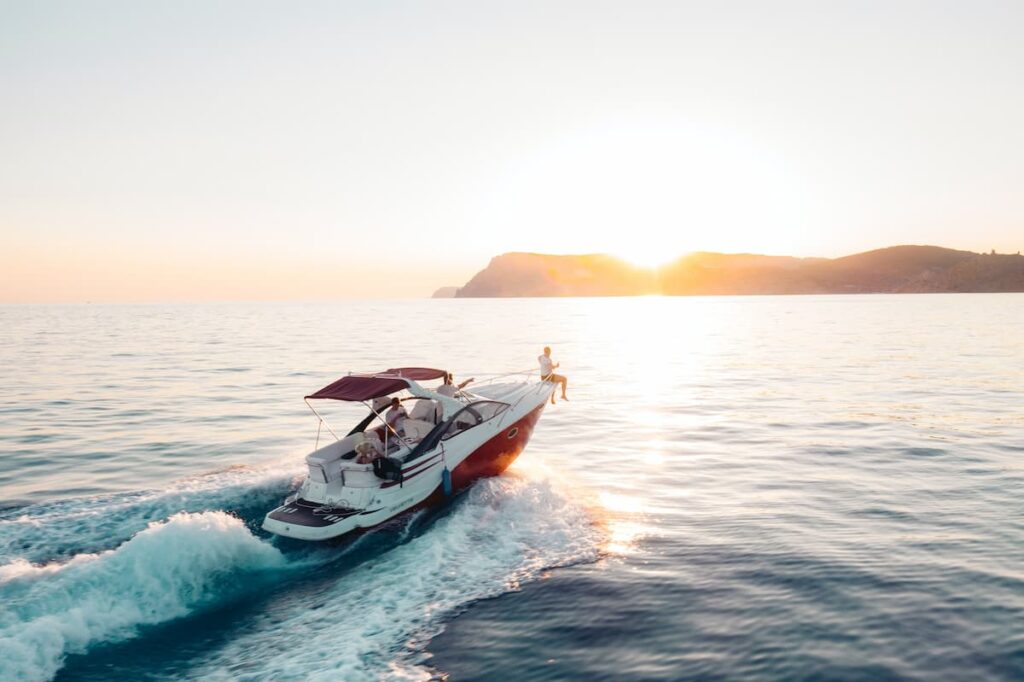
Calculating How Much Fuel Does a Boat Use Per Hour
To calculate fuel consumption, you need to know the fuel burn rate of the engine. The fuel burn rate is the amount of fuel the engine consumes per hour. You can calculate the fuel burn rate by dividing the engine’s horsepower by the fuel consumption rate.
For example, if an engine has a horsepower of 100 and consumes 10 gallons of fuel per hour, the fuel burn rate would be 10/100, which is 0.1 gallons per horsepower per hour.
Once you know the fuel burn rate, you can estimate how much fuel the boat will consume in a given period. For example, if the boat travels at a speed of 20 knots and has a fuel burn rate of 0.1 gallons per horsepower per hour, and the engine has 200 horsepower, the boat will consume 20 gallons of fuel per hour.
In conclusion, understanding fuel consumption in boats requires knowledge of several critical factors, including boat type and size, engine type and size, weight, speed, and weather and water conditions. Calculating fuel consumption involves determining the fuel burn rate of the engine and estimating how much fuel the boat will consume in a given period.
Types of Boats and Their Fuel Consumption
When it comes to fuel consumption, different types of boats have different requirements. Factors such as the boat’s size, weight, and speed all play a role in determining how much fuel it will consume per hour. Here are some common types of boats and their typical fuel consumption rates.
Fishing Boats
Fishing boats are typically smaller and slower than other types of boats, which means they use less fuel. On average, a fishing boat will use between 3 and 8 gallons of fuel per hour at cruising speed.
Pontoon Boats
Pontoon boats are popular for leisurely cruising and entertaining. They are larger than fishing boats and have a flat bottom, which makes them more stable. However, this also means they use more fuel. A pontoon boat will typically use between 5 and 15 gallons of fuel per hour at cruising speed.
Bass boats are designed for fishing and are typically smaller and faster than other types of boats. They are also more fuel-efficient, using between 3 and 6 gallons of fuel per hour at cruising speed.
Center Console Boats
Center console boats are versatile and can be used for fishing, cruising, and water sports. They are larger than bass boats and typically use between 10 and 20 gallons of fuel per hour at cruising speed.
Cabin Cruiser Boats
Cabin cruiser boats are designed for overnight trips and have a cabin with sleeping quarters and a bathroom. They are larger and heavier than other types of boats, which means they use more fuel. A cabin cruiser boat will typically use between 20 and 30 gallons of fuel per hour at cruising speed.
Bowrider Boats
Bowrider boats are popular for water sports and leisurely cruising. They are typically smaller than cabin cruiser boats but larger than fishing boats. A bowrider boat will typically use between 5 and 15 gallons of fuel per hour at cruising speed.
Overall, the fuel consumption of a boat depends on various factors such as boat size, weight, and speed. Understanding the fuel consumption of different types of boats can help you make an informed decision when choosing a boat that meets your needs while minimizing your fuel costs.
Engine Size and Power
Understanding horsepower.
When it comes to boat engines, horsepower is a crucial factor in determining how much fuel a boat will consume per hour. Horsepower is a measure of the engine’s power output, and it directly affects the speed and performance of the boat. The more horsepower an engine has, the faster the boat will go, but it will also consume more fuel.
How Engine Size Affects Fuel Consumption
Another important factor that affects fuel consumption is the engine size. The size of the engine is measured in horsepower, and it can range from small outboard motors with 9.9 hp to large inboard engines with over 300 hp. In general, larger engines consume more fuel than smaller engines, but they also provide more power and speed.
The type of engine is also important when it comes to fuel consumption. Two-stroke engines are known to be less fuel efficient than four-stroke engines, but they are also lighter and provide more power. Four-stroke engines, on the other hand, are more fuel efficient and produce less emissions , but they are heavier and provide less power.
The weight of the boat and the drag created by the hull also play a role in fuel consumption. Heavier boats require more power to move through the water, which means they will consume more fuel. Boats with a sleek, streamlined hull design will create less drag and require less power to move through the water, resulting in lower fuel consumption.
Here is a table that shows the average fuel consumption for different engine sizes:
| Engine Size | Fuel Consumption (Gallons per Hour) |
|---|---|
| 9.9 hp | 0.5 – 1.5 |
| 15 hp | 0.75 – 2 |
| 20 hp | 1 – 3 |
| 25 hp | 1.5 – 3.5 |
| 40 hp | 2.5 – 6 |
| 50 hp | 3 – 7 |
| 60 hp | 3.5 – 8 |
| 75 hp | 4 – 10 |
| 90 hp | 5 – 12 |
| 115 hp | 6 – 15 |
| 175 hp | 10 – 25 |
| 200 hp | 12 – 30 |
| 225 hp | 14 – 35 |
| 250 hp | 16 – 40 |
| 20 – 50 |
It’s important to note that these numbers are just averages, and actual fuel consumption will depend on a variety of factors, including boat weight , hull design, and weather conditions.
Cruising Speed and Fuel Efficiency
Understanding cruising speed.
Cruising speed is the speed at which a boat travels comfortably and efficiently. It is important to understand that cruising speeds vary depending on the type of boat, weather conditions, water conditions, and the number of passengers on board. In general, most boats have a cruising speed of around 20-30 knots.
When a boat is traveling at its cruising speed, it is operating at its most efficient fuel consumption rate. Going faster than the cruising speed can result in a significant increase in fuel consumption. On the other hand, going slower than the cruising speed can also result in increased fuel consumption as the boat struggles to maintain speed.
How to Optimize Fuel Efficiency
To optimize fuel efficiency, it is important to find the ideal cruising speed for your boat. This can be done by conducting a fuel consumption test. Take a piece of paper and make a table, or use a spreadsheet, listing out the rpm, speed in mph, and amount of fuel burned per hour, or gph. Divide the speed by the gph, and you’ll get mpg.
To further optimize fuel efficiency, consider the following tips:
- Reduce weight on board: The more weight on board, the more fuel the boat will consume. Remove any unnecessary items to reduce weight.
- Maintain the boat: A well-maintained boat will operate more efficiently and consume less fuel.
- Adjust trim: Adjusting the trim of the boat can help reduce drag and increase fuel efficiency.
- Monitor weather and water conditions: Rough weather and choppy waters can cause the boat to consume more fuel. Avoid these conditions when possible.
In conclusion, understanding cruising speed and optimizing fuel efficiency can help reduce fuel consumption and save money. Conducting a fuel consumption test and following these tips can help you find the ideal cruising speed for your boat and reduce fuel consumption.
Fuel Costs and Maintenance
Boat ownership comes with a set of responsibilities that extend beyond simply enjoying the water. One of the most significant factors to consider is the cost of fuel and maintenance.
Calculating Fuel Costs
Fuel costs are a significant expense for boat owners, and calculating them can be challenging. The amount of fuel a boat uses per hour depends on several factors, including the size and weight of the vessel, the type of engine, and the speed at which it is traveling.
Boat owners can use a fuel consumption calculator to estimate how much fuel their vessel will consume based on these factors. It is important to remember that fuel prices can vary depending on the marina and the type of fuel used.
Fuel-Efficient Boats
Fuel-efficient boats are becoming increasingly popular among boat owners due to the cost savings they offer. These boats are designed with fuel efficiency in mind and typically have smaller engines that consume less fuel.
Boat owners can also take steps to make their vessels more fuel-efficient, such as reducing their speed, maintaining their engines, and properly inflating their tires.
Maintenance Tips
Proper maintenance is crucial for keeping a boat in good working condition and minimizing fuel costs. Boat owners should regularly inspect their vessels for any signs of wear and tear and address any issues promptly.
Regular engine maintenance, such as oil changes and filter replacements, can also help improve fuel efficiency and reduce the risk of breakdowns. Boat owners should also ensure that their boats are properly cleaned and stored to prevent damage from the elements.
In conclusion, fuel costs and maintenance are significant expenses for boat owners to consider. By calculating fuel costs, investing in fuel-efficient boats, and practicing proper maintenance, boat owners can minimize their expenses and enjoy their vessels for years to come.

Frequently Asked Questions
What is the average fuel consumption for a boat per hour.
The average fuel consumption for a boat per hour varies depending on several factors such as the size and type of the boat, the engine’s horsepower, and the speed at which the boat is traveling. As a general rule of thumb, a small boat with a 25-horsepower engine can consume around 2-3 gallons of fuel per hour, while a larger boat with a 200-horsepower engine can consume around 20-30 gallons of fuel per hour.
How do I calculate fuel usage for a boat trip?
To calculate fuel usage for a boat trip, you need to know the boat’s fuel consumption rate, the distance to be covered, and the speed at which you will be traveling. You can use an online fuel consumption calculator or a fuel flow meter to determine the boat’s fuel consumption rate. Once you have this information, you can estimate how much fuel you will need for your trip.
What is the fuel efficiency of a 26-foot boat?
The fuel efficiency of a 26-foot boat depends on several factors such as the boat’s weight, the engine’s horsepower, and the speed at which the boat is traveling. On average, a 26-foot boat with a 250-horsepower engine can consume around 20-25 gallons of fuel per hour at cruising speed.
How much fuel does a 50-foot boat use per hour?
The amount of fuel a 50-foot boat uses per hour depends on several factors such as the boat’s weight, the engine’s horsepower, and the speed at which the boat is traveling. On average, a 50-foot boat with a 500-horsepower engine can consume around 50-60 gallons of fuel per hour at cruising speed.
How much diesel fuel is consumed per horsepower?
On average, a diesel engine consumes around 0.4 pounds of fuel per hour for each unit of horsepower it produces. For example, a 200-horsepower diesel engine would consume around 80 pounds of fuel per hour.
How far can a boat travel on a full tank of gas?
The distance a boat can travel on a full tank of gas depends on several factors such as the boat’s fuel consumption rate, the size of the fuel tank, and the speed at which the boat is traveling. On average, a boat can travel around 100-200 miles on a full tank of gas. However, this can vary significantly depending on the boat’s size, weight, and engine horsepower.
- Recent Posts
- The Role of Cargo Ships in Global Trade – August 22, 2024
- Report: Yang Ming’s YM Mobility Explosion at Ningbo-Zhoushan Port – August 9, 2024
- Understanding Drillships: Types, Key Features and Advancements – August 1, 2024
About the author
I worked as an officer in the deck department on various types of vessels, including oil and chemical tankers, LPG carriers, and even reefer and TSHD in the early years. Currently employed as Marine Surveyor carrying cargo, draft, bunker, and warranty survey.
Latest posts
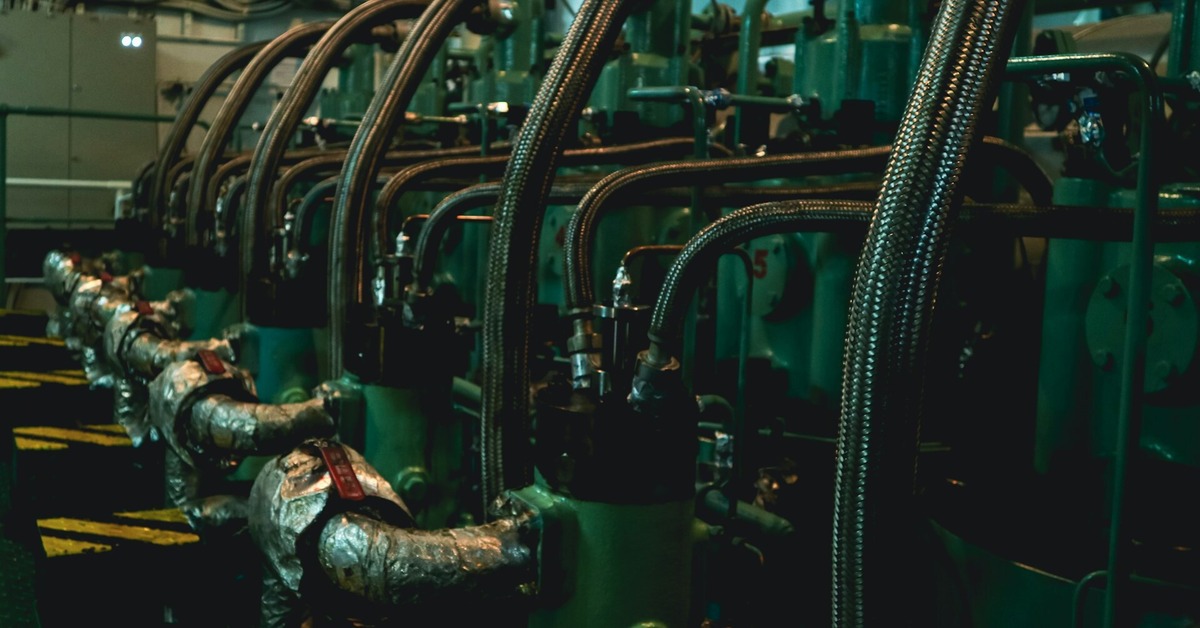
The Quality Control Process in Marine Manufacturing
Companies in the marine manufacturing space must have tight and effective quality control processes. What steps should an effective quality control process include?
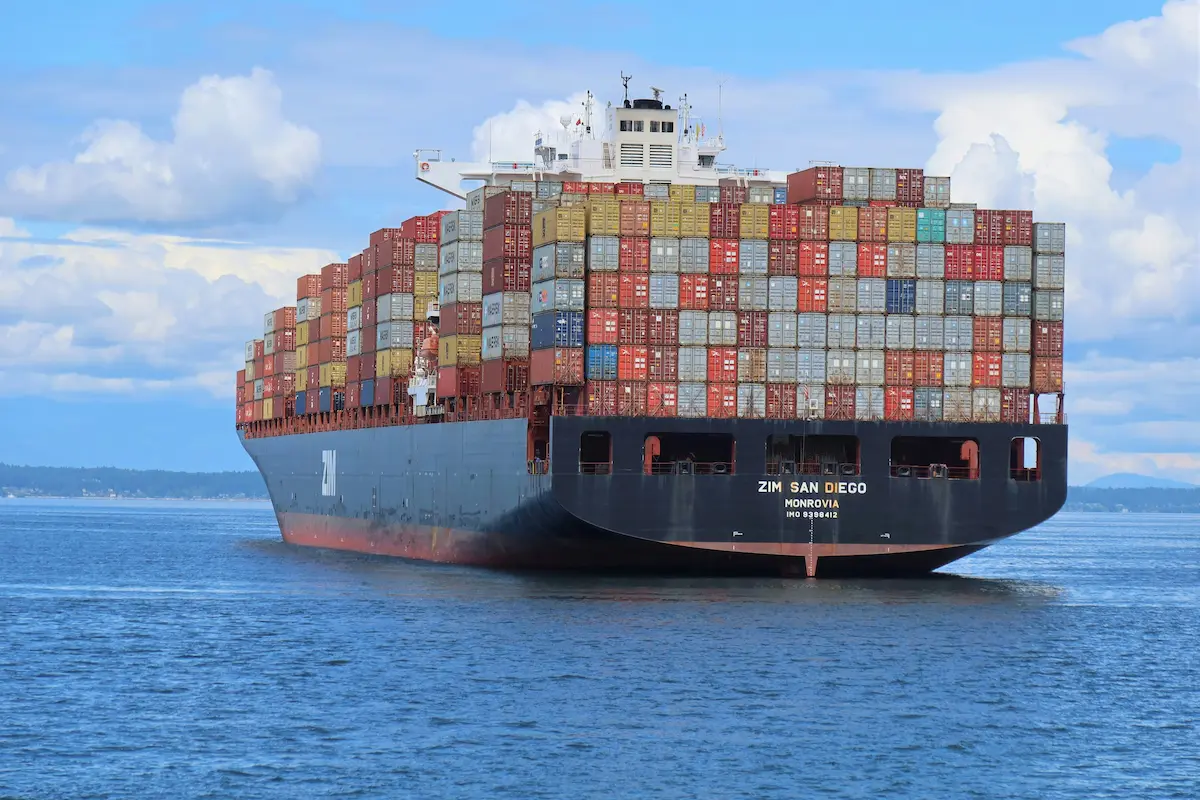
The Role of Cargo Ships in Global Trade
Contents show Volume of Goods Transported by Sea Key Global Trade Routes Economic Impact of Maritime Shipping Types of Cargo Commonly Transported Environmental Considerations Conclusion Cargo ships are the lifeline […]
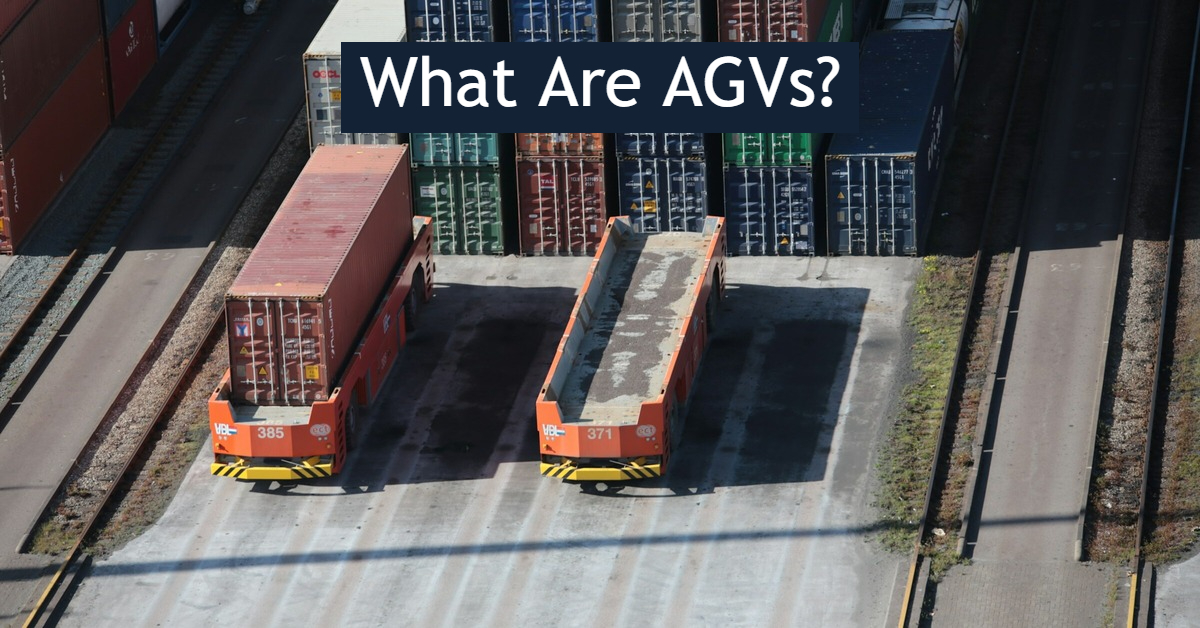
What Are AGVs? Automation Becoming Increasingly Common in Seaports
What are AGVs? Automated guided vehicles can minimize the troubles of manual operations and enhance seaport operations.

Do you operate a yacht? Our app is perfect for you
Yacht fuel cost calculator - how to estimate the costs.
Yacht captains have many responsibilities when it comes to the management of their vessel. One of them is keeping track of expenses, which is why it is important to familiarize yourself with the vessel’s operational costs. Keeping a luxury superyacht afloat isn’t cheap, and many claim that the average annual cost ranks up to 10% of the vessel’s price.
From these expenses, a significant portion goes to fuel. Filling up the tank of your boat is quite pricey, which is why a growing number of boat owners want to know exactly how much they are looking to spend for their upcoming voyage. This is also important for people who want to charter a boat for their holiday.
If you’re wondering how to best estimate the costs involved, you’re in the right place. This article will help you calculate your vessel’s yacht fuel cost while giving an overview of all the criteria used as variables. To make the process even easier, we link to a yacht fuel cost calculator to help you get an indication of the expenses you’ll need to cover. Let’s delve in!
Yacht fuel cost calculator
How to estimate yacht fuel costs, how much fuel does a yacht use.
- Price of boat fuel per gallon?
Yacht fuel formula
The easiest way to calculate your fuel costs is by using a yacht fuel cost calculator. There is a great calculator available here in case you want to save time and get an approximate estimation.

As you can see, the yacht fuel cost calculator has many variables which you need to be aware of before you set out to calculate the approximate price. This is what we will be dealing with in the next few chapters.
To help you get a better understanding of the calculation process we will do things manually while giving you the exact formulas used to calculate your vessel’s fuel needs. Therefore, make sure you keep on reading.
There are several things you need to keep in mind when you first set out to estimate the total fuel cost for your next voyage. These are summarised in the following points:
- Distance of journey - The total amount of nautical miles (or km)
- Cruising speed - The (average) speed of your vessel (in knots or km/hr)
- Fuel consumption - Understanding how many gallons (or liters) of fuel are consumed per hour
- Yacht fuel price - Understanding the average market price per gallon of fuel
The first two points depend solely on your needs and personal preference, which means that they are more flexible on a subjective basis. The latter two points may require a bit of research, especially if you’re not familiar with the engine of the vessel.
In the following sections, we will delve deeper into each of the points mentioned above, and offer the required formulas to help you calculate yacht fuel cost.
Calculating distance and speed
To understand the exact distance you are looking to cover in your next voyage, you can simply use Google Maps to plan your route. The following video explains the process in detail.
As soon as your route is planned out, you can measure the distance as well, selecting the preferred method of calculation. In our case, it is best to measure in nautical miles (1nm=1,85km), as this metric is more commonly used among sea men. The yacht fuel cost calculator above has an embedded map that helps you pinpoint the journey you want to make.
Next comes the cruising speed. The number is mostly calculated in knots (nautical miles/hr). The speed with which the vessel will cruise depends on the captain onboard, but is often influenced by the owner and guests onboard. You can make a rough estimation of this number based on previous trips.
Next, we need to calculate the amount of fuel that you will likely need. To do this we need to understand the engine type, its horsepower, and several other factors.
Let’s take a marine diesel engine for example. These engines are very common on motor yachts and consume approximately 0.4 pounds of fuel per hour for each unit of horsepower. You can find fuel consumption info for your specific engine by looking it up on the web or by calling the service number.
Once you know the fuel burn rate, it’s best to add a relative error margin of 10% based on minor factors. These include weather conditions, vessel size, and drag, all of which can increase the fuel burn.
How much fuel does a yacht use per hour?
Now that you know all the variables you can go ahead and calculate the amount of fuel that your yacht will need.
- Start by calculating the fuel burn per hour based on the horsepower of the engine.
- Add a multiplier based on the cruising speed of your vessel.
A vessel with a diesel engine of 300 horsepower will most likely burn 16-17 gallons per hour, which you can then use as a guideline when calculating the travel time based on the nautical miles you are looking to cover.
Superyachts are consuming much more fuel. An average 70-meter luxury yacht will burn around 130 gallons per hour with the engines running, while the amount increases significantly when the ship is moving. On average, you are looking at ±€2000 per hour (±1000 gallons) to achieve a speed of 20 knots. Of course, the higher the cruising speed, the more fuel you will be burning per hour, which in turn makes each hour at sea more expensive.
How much does boat fuel cost per gallon?

The exact price you are looking to pay per gallon depends on the marina you find yourself in. By looking at several price points of marinas, we get the following:
- Average diesel prices range from $3.2-$3.9 per gallon
- Average petrol prices range from $7.2-$7.8 per gallon
Note that discounts usually apply whenever you choose to purchase large quantities of fuel.
Why is boat fuel so expensive?
Marine fuel pricing is heavily inflated due to low supply and high demand. In short, the limited number of fuel stations at marinas have to service all the yachts that dock, which leads to a no-choice monopoly.
That said, yacht owners are usually not that concerned about the small price spike that marinas charge as an extra. If anything, they are happy to pay due to the convenience of the service.
How much fuel does a yacht hold?
Once again, the answer to this question depends on the size of the vessel. Smaller yachts can hold around 1300 gallons of fuel, while the bigger vessels can store up to 100,000 gallons. The ship’s engineers should be able to provide this number for the vessel you command.
Now that we have a better understanding of all the variables that determine the cost of fuel, we can go ahead and take you through the calculation process step by step.
First, know the total duration of your cruise. To obtain this information, divide the number of nautical miles by the cruising speed of your vessel (knots). For example, if you want to make a journey that totals 150 nautical miles while traveling at 20 knots, the yacht fuel formula looks as follows:
Total duration = 150 nm / 20kn
Total duration = 7,5 hrs
Note that the amount of fuel consumption may end up higher than expected if:
- Sea and weather conditions are not favourable
- You plan to make short stops along the way while the engine keeps running
Next, what you want to do multiply the number of hours by the number of gallons that your engine burns on an hourly basis while moving at the speed you previously indicated. If we take, as an example, the superyacht mentioned in the previous examples, we would make the calculation as follows:
7,5 hrs x 1000 gph = 7500 gallons
Now assume that you will also make two stops along the way, an hour and a half each, in order to let the guests enjoy their time; maybe ride a jet ski.
You then multiply the added number of hours with the consumption rate of a running engine. In this case:
3 hrs x 130 gph = 390 gallons
All that is left to do now is add up the total amount of fuel needed and multiply the number with the price per gallon.
(7500+390) x $3,5 = $27615
In this example, the final cost of your will set you back a little bit more than 27 thousand dollars. Just to be safe, calculate the additional 10% (margin of error) to be prepared against unexpected mistakes. This added amount is not necessarily an ad-on when you consider chartering. Private yacht owners, however, should add the amount to their final cost.
And that's it! You should now have a better idea on the steps you need to follow to calculate the fuel costs for your yacht. While there is quite a bit of information you should keep in mind, it is best to plan out everything with detail to avoid unforeseen costs. If you enjoyed this article, check out our blog post on yacht electrical systems as well.


Odessa, Ukraine.
Afina 6th Floor, Office 625, 65054
24/7 Customer Support
Mon - fri: 9:00 - 17:30.
Online support always open
How to calculate boat or ship fuel consumption with total miles
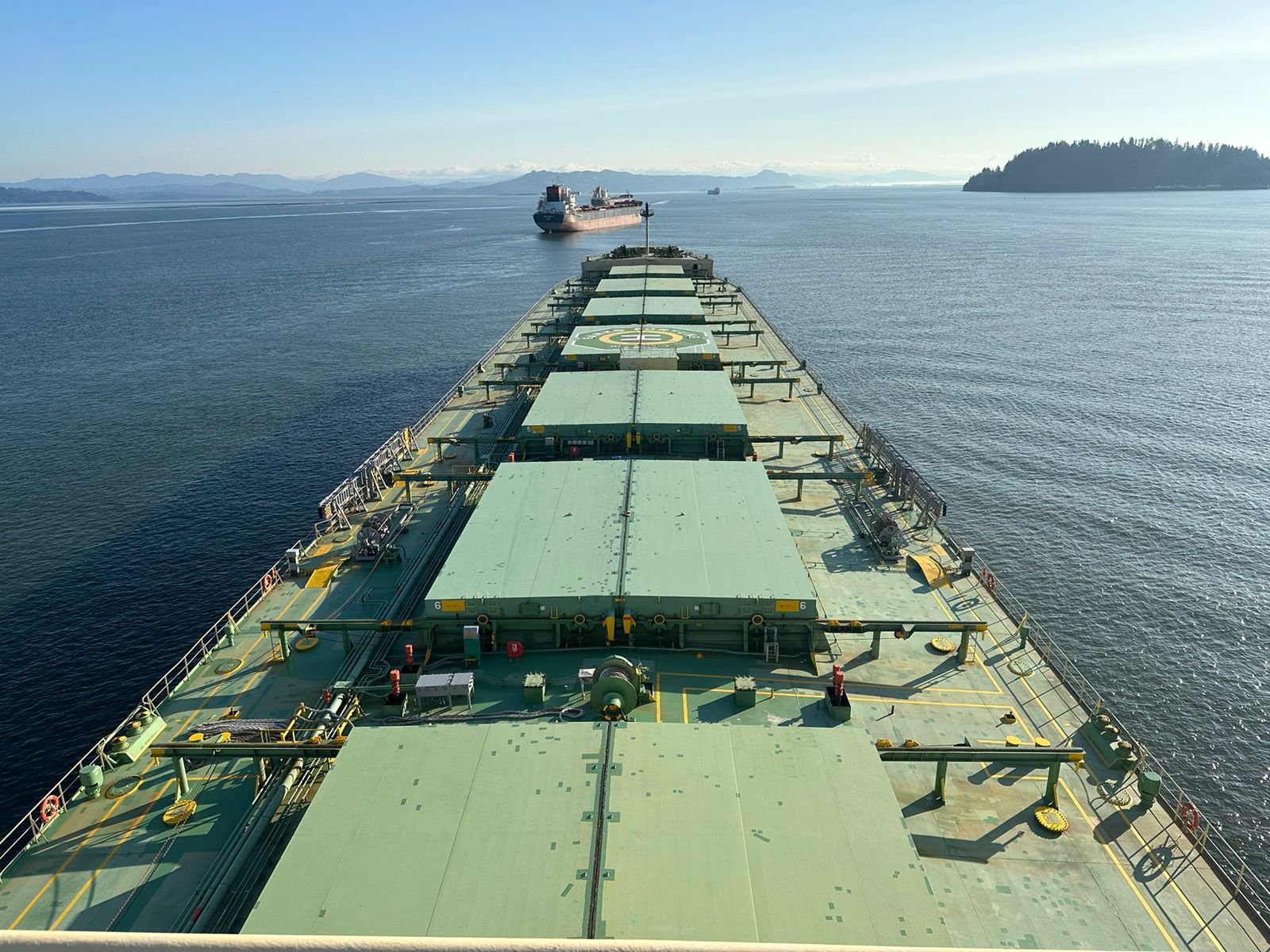
On this article we will share with you easy way to calculate your boat and/or ship engine fuel consumption, after obtained total miles to travel.
As they use to say, “knowing how much fuel your engines burn gives you a great idea of the range of your boat.” Before sailing out a boat, it’s important to check your boat distance capacity base on the fuel tank capacity as well.
By doing so, it will be clear if you might need additional fuel or less fuel to have your boat draft more stable.
Easy way to estimate boat fuel consumption
Generally, engines burn fuel base on it capacity (horse power – HP or kilowatt- KW ). Base on that firstly you need to find out your engine power output from the nameplate or tag on the engine body.
To obtain the engine consumption per it capacity the formula is;
GPH = (SFC x HP) / FSW
GPH – gallons per hour
SFC – specific fuel consumption
FSW – Fuel Specific Weight
Learn more about Fuel or Bunker calculation in weight
Now, let say your engine constant consumption is as follows (as indicated on the engine nameplate);
FSW: 6.0 lb. per gal
SFC: 0.60 lb. per HP
Then to calculate how much 400-HP boat engine will consume in an hour will be ;
GPH = (0.60 x 400)/ 6.0 = 240/6.0 = 40 gal per hour
The above example we assume that the engine is making 100% of it HP. If you are to running on a particular speed or load, in such case, you can change the 400-HP to the actual load you plan to run.
Also, need to confirm, the type of fuel your engine is using, to understand it Weight or specific gravity.
For Example;
Diesel engine FSW is about 7.0-8.6 Ib and Gasoline engine FSW is about 6.0 -7.0Ib.
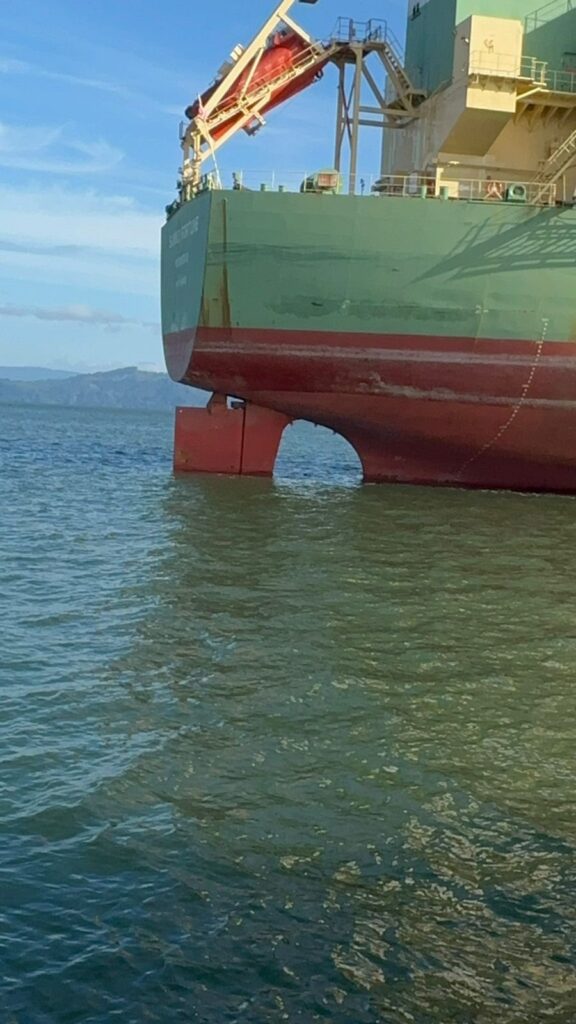
Easy way to estimate ship fuel consumption by total miles
Having known your engine consumption is 1.166mt per hour of diesel . If ship is to cover 1275 miles and the ships speed is 11.1 knots . Then to know total consumption for the total traveling miles.
The formula to calculate tha is as follows;
Hours = Total miles ÷ speed
H = 1275 ÷ 11.1 = 114.86 hrs
So, now you have obtained the total hours it will take you to cover 1275 miles with the speed of 11.1 miles, let’s calculate the total consumption engine will take to reach your destination;
Total consumption = engine consumption per hour x total hours
TC = 1.166 x 114.86 = 133.926 metric tons (mt).
So, in 4.8 days sailing, of this ship or boat, the total consumption base on same load HP or KW, she will reach her destination with 133.926 metric tons of fuel.
We hope this article helps for your search. To read more of our newsletter and site updates, please subscribe. Don’t forget to leave your comments if any more questions.
Share this:
- Click to share on Twitter (Opens in new window)
- Click to share on Facebook (Opens in new window)
- Click to share on LinkedIn (Opens in new window)
- Click to share on WhatsApp (Opens in new window)
- Click to share on Reddit (Opens in new window)
- Click to share on Tumblr (Opens in new window)
- Click to share on Pinterest (Opens in new window)
- Click to share on Pocket (Opens in new window)
- Click to share on Telegram (Opens in new window)
Related post
1 thought on “how to calculate boat or ship fuel consumption with total miles”.
Attention to HR DEPARTMENT
Dear Sir / Madam
I would like to take this opportunity and submitting my application letter to your company as FITTER. My name is Hendra Saputra,I am fourty one years old. I Have enough experience and certificate as Fitter and Welder,Maintenance,Mechanical. I am responsible, Highly self motivated and strong analytical skills, Creative, self starter, team player and having self integrated Willing to work at site, with a duty roster of 6:2, and can work with a team or individual. Instead of that I posses adequate computer skill and have good communication. Here with I enclose my curriculum vitae, which will give details of my qualification.Other duties I can handle as follow: • Be able to perform welding on various materials at required position using different welding processes, including, but not limited to, SMAW, FCAW, GMAW and SAW. • Lay out, position, fit and weld various piping and structural components, including pipes, flanges, fittings, valves, piping supports, structural plates, beams, etc., in accordance with the supplied piping/structural fabrication drawings. • Set up, troubleshoot, and operate welding machines according to job specifications and welding procedures. • Adjust valves, gauges, and flames as needed and be capable of handling compressed gas and oxygen cylinders safely. • Operate air arc gouger, grinder, and other industry machines, tools, and equipment. • Conduct behavioral based safety observations. I would express my gratitude for your attention and I hope I could follow your recruitment test at a very meant time
Sincerely, Hendra Saputra +62-82284154477
LEAVE A REPLY Cancel reply
Related posts.
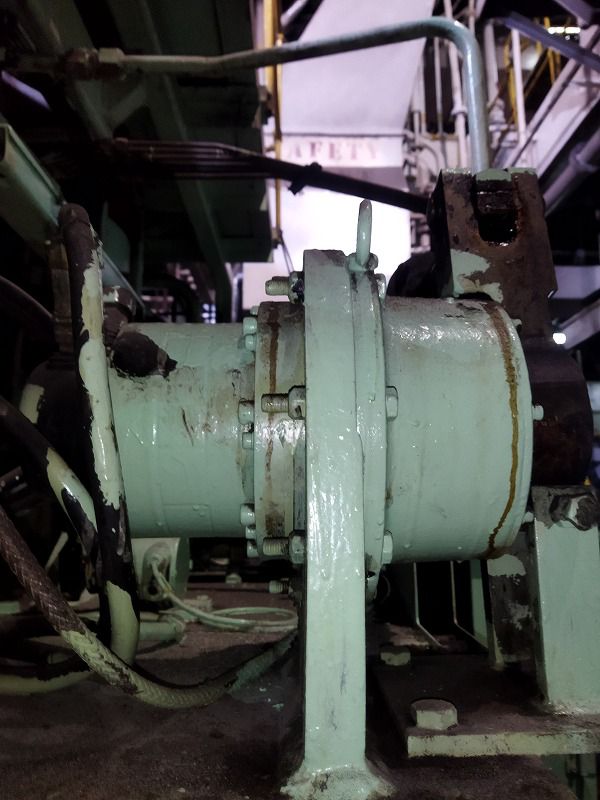
Nabtesco MCG-402 ME Governor Actuator error

China Authority : Deliberately Philippine ship Collided With Our Vessel

7 best places to buy New & used boats
Bulk carrier ship encounters rough weather at sea.
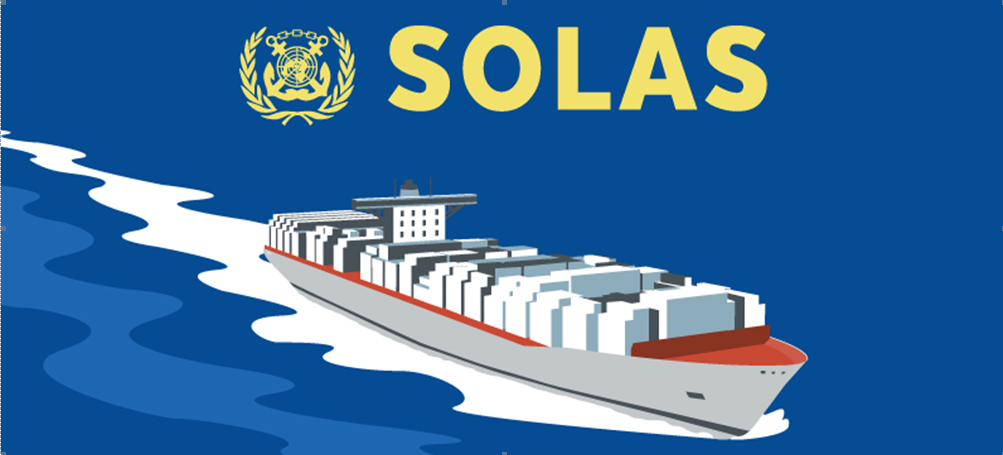
GUIDELINES REGARDING EMERGENCY GENERATOR TESTING COMPLIANCE

How Balclor BWMS works
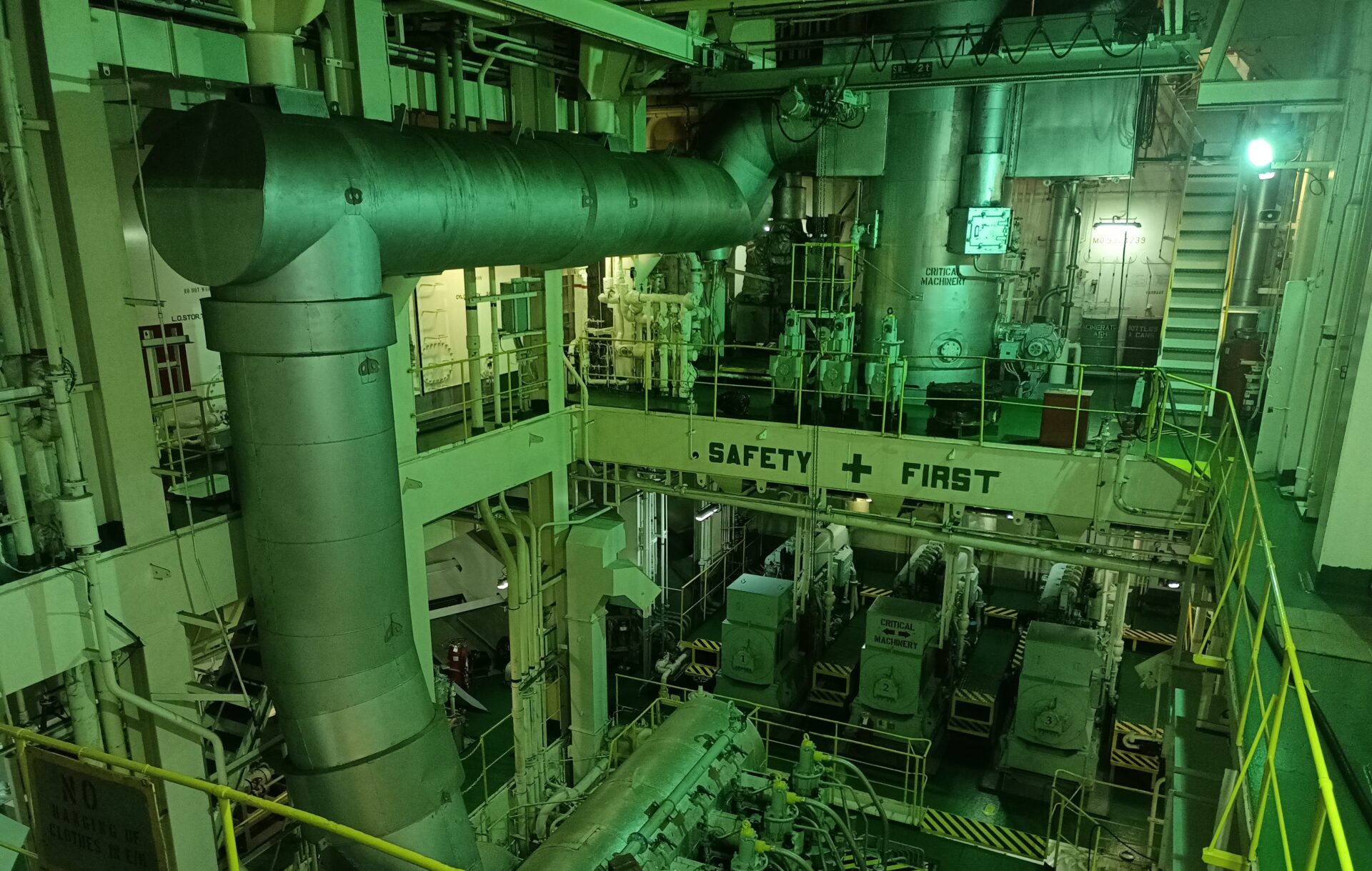
Ship Emergency Generator Load Testing Methods
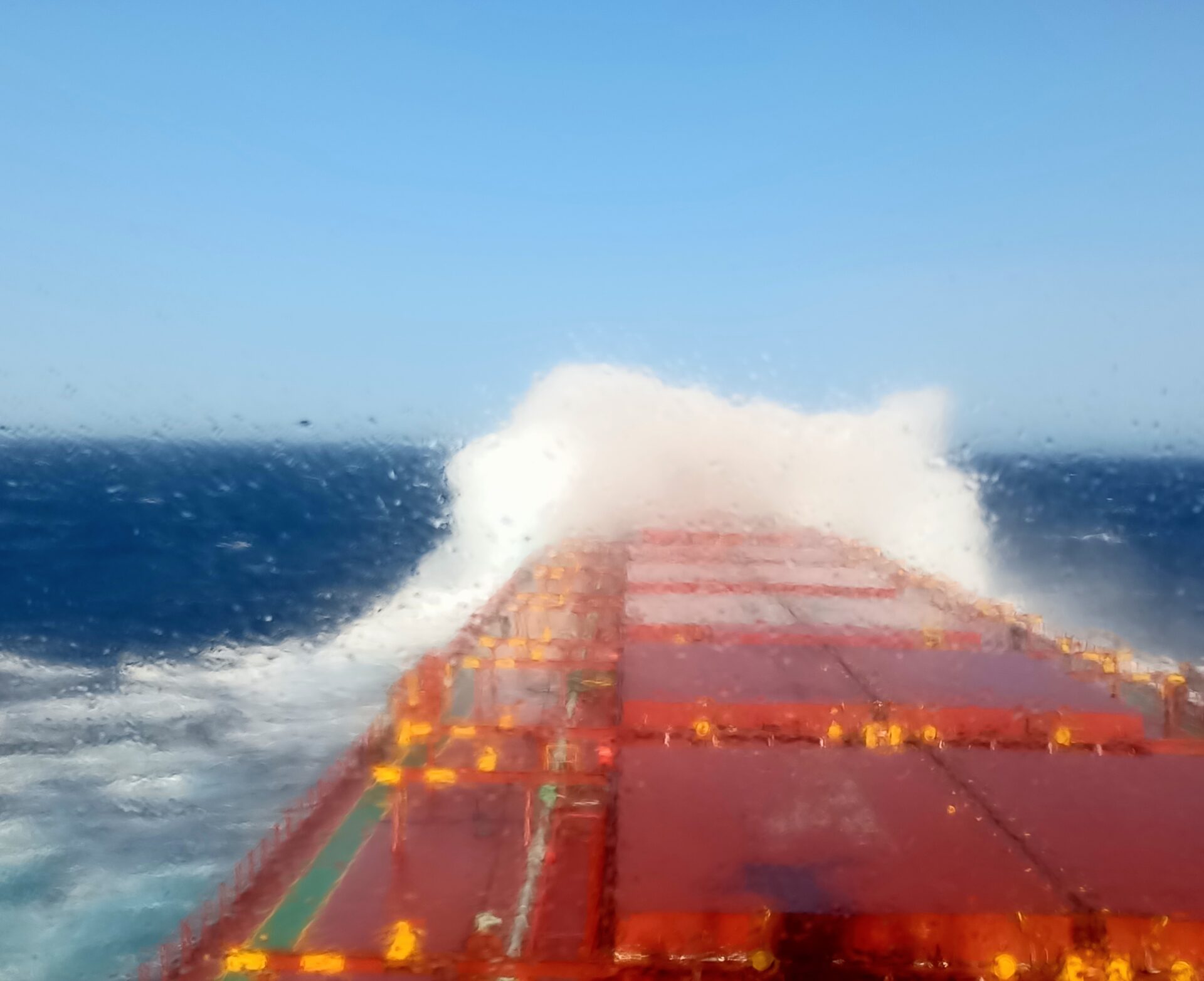
7 Major Ship Alarms to be aware – safety at sea
Subscribe to newsletter.
- Privacy policy
- Marine Engineering
- Marine Navigation
- Sea Experience
- MARINE FORUM
Join us on social media
Share to social media.
Your source for the latest news on yachts, boats and more. Read through our articles to find out how to compare boats and find the right fit for you!
Measuring your Yacht Fuel Consumption per Hour
Oct 10, 2019
less than a min

How to measure your yacht fuel consumption per hour
Yachts are quite similar to other vehicles in the sense that they work through fuel. Similarly to any other vehicle, it is important to calculate the yacht fuel consumption per hour before you plan a trip or before you purchase a vessel. Fuel consumption is also a good comparison base between boats. Whether before going on a trip, or buying a yacht, you need to have all the facts straight and know how much money you are going to invest not only at once upon purchase but also periodically.
There are different factors in the fuel consumption of a yacht. For example, if you use a generator or if you stay at anchor instead of docking, the fuel consumption will be increased . The itinerary will change fuel consumption as well. Sea is different than roads and the conditions in a sea change more dramatically than on land, which also impacts fuel consumption.
Fuel consumption for boats is measured in gallons per hour . The efficiency of boat fuel is measured in pounds of fuel that are used in an hour per horsepower. In order to be able to read the calculation right, any boat owner should know that gasoline is almost 6.1 pounds per gallon while diesel is 7.2 pounds per gallon .
Usually, if you consider that all sea conditions are pristine, the fuel consumption of a normal diesel engine is 0.4 pounds per hour for each unit of horsepower.
How to calculate yacht fuel consumption
Calculating it by hand is complicated, which is why many people choose to use online calculators . The way it works is it allows you to put down certain parameters that calculate the fuel consumption. These parameters include route , units of measurement and engine power .
Lastly , what most people are interested in is actually the cost of fuel consumption per hour. So the last parameter to include is the current price of fuel . Marine websites usually include this price up to date.
Another step that people have taken is develop a boat fuel consumption chart for their own boat and find the average in a month.
Alternatively, there is a formula that calculates the maximum fuel consumption of the engine which is:
GPH = (specific fuel consumption x HP) / The specific weight of fuel
This formula determines the fuel consumption when the engine is at full speed . If the speed is decreased then the fuel consumption is decreased as well. Basically, what you need to do is include the horsepower rate of the boat and you multiply it by the specific fuel consumption average and you divide that product by the weight of the fuel.
If you want to compare your boats GPH with other boats than you can use TheBoatDB database. If you already have a boat you can register for free and compare it with other boats within the database.
These are simple methods to calculate fuel consumption, however for a precise one you would have to know all the specifics of your boat and put the parameters through the calculator.
You might like these too

What is a Chine on a Boat lg ...
Oct 01, 2021

Flat Bottom Boat Advantages lg ...
Sep 30, 2021

Shoal Keel Sailboats Advantages and Disadvantages lg ...
Sep 13, 2021

Shallow Draft Boats Explained lg ...
Sep 06, 2021

Best Boat for Open Ocean Sailing lg ...
Aug 27, 2021

Best Boat Design for Rough Water lg ...
Aug 25, 2021
- Management Team
- Carpentry & Joinery
- Custom Furniture
- Floor Board
- Gangway / Paserella
- Custom Made Mug Holders
- Deck Caulking Replacement
- Paint Process
- Awl Grip Paint
- Aluminium Paint
- Yacht Paint
- Bottom Preparation
- Antifouling
- Non-Sleep Deck Paint
- Barrier Coat
- Steel Paint
- Grit Blasting
- Sun Odyssey 45
- Jeanneau 42 DS
- Carbon Manufacturing
- Balsa Core Repearing
- GRP Damage Repearing
- GRP Modification
- Bow Thruster Installition
- Carbon Repearing
- Infusion Productions
- Post Curing Application
- Delamination Repairing
- Osmosis Treatment
- Interior Illumination
- Under Water Light Installition
- DC Charge System Upgrade
- Navigation Equipment
- Managment System Application
- Deck Port Panel Design
- DC Consumption Account
- Engine Remote Control
- Renew Standing Rigs
- Stepping / Unstepping Mast
- Rig Repairing
- Mast Head Report
- Mast Foot Report
- Mast Coller Preparation
- Chain Plate Check and Report
- Spartite Application
- Mast Electric Works
- Furling Installation
- Hydraulic System Services
- Easy Tracing System Production
- Splicing Works
- New Sail Supply
- Sail Winterizing Maintenance
- Cruising Shut Systems
- Carbon Composite Works
- Deck Hardware
- Valeting Works
- Conservation Works
- Winterizing Sail
- Main Engine
- Battery Charge
- Life & Raft
- Fire Extinguisher
- Dehumidifiers Service
- Bilge Cleaning
- Winter Cover
- Shrink Wrap
- Out Board Maintenance
- Portable Hangar
- 316L Stainless Steel Bow Protection Plate
- Mechanic Engineering
- Technical Service
- Bonning Electronic Control Services
- Engine Performance Analyze
- Warranty Subjects
- Recommending
- New Engine Installition
- Spare Parts
- Periodic Maintenance
- Caravel Shaft Brearings
- Fluiten mechanic seals
- Offshore Service
- Mobile Service
- Project Managment
- Architect & Engineering
- Development Projects
- New Boat Equipment Review
- Used Boat Review
- Assessing the Damage
- Personnel Qualification Review
- Yacht Transfer
- 2nd hand boat
- Nimbus 370 Coupe
- 13 Mt. Sailing Yacht
- Princess 85
- Sunreef Supreme 68
- Prenses 35 Mt.
- Bougainvillaea 62
- Sunseeker 76
- Princess 64
- Bavaria 2010 Criser 55
- Sunseeker Manhattan 60
- Ferretti Custom Navetta 33
- Catamaran Salina 47
- Beneteau 57
- Hallberg Rassy 37
- Fairline Squadron 680
- Hallberg Rassy 43
- Cardinal 46
- Hallberg Rassy 382
- Lagoon 450F
- Outremer 5X
- Leopard 27 Mt
- Look after and winterising works
- Catamaran Manufacturing
- HR 352 MODEL
- SY SUN ODYSSEY 47
- CARDINAL 46
- S/Y BENETEAU 57
- 65 ft Sailing yacht
- 24 M Wooden Gulet Sailing Yacht
- 12 M Wooden Sailing Yacht
- 17 M Wooden Motor Yacht
- Beneteau 361
- Sun Odyssey 42i
- Sun Odyseey 47
- Halberg Rassy 352
- Sunseeker Predator 74
- Halberg Rassy 37
- Beneteau Oceanis 393
- Halberg Rassy 382
- Ferretti Navetta 33 Customline
- Aluminium 60 feet Custom Sail
- Benetti 115
- X yacht 562
- Sunseeker 84
- Ferretti 225
- Riva rivarama Super
- Oceanis 42CC
- Grand Banks Classic Sedan
- Rivama Super
- Couach Yachts 35
- Wooden Gulet
- Ferretti Custom Line 33
- Custom Wooden Sailing yacht
- Custom GRP Service Boat
- Sunseeker Manhattan 70
- Apremare Maestro 56
- Madera Ribs 16 Mt.
- Hudson Force 50
- 13 Mt. Custom Sailing Yacht
- Beneteau 38
- X Yacht 562
- Eurotrawler 17.5
- Nimbus 370 coupe
- Sunreef 60 Catamaran
- 30 M Custom Sailing Yacht
- Grand Banks 32 Sedan
- 40 M Custom Sailing Yacht
- Ferretti Custom Line Navetta 33
- Princess 23 M
- 13M Sailing yacht
- Fairline 57
- Finngulf 44
- Gelcoat Restore
- Composite Repair
- Hoek Design Refit
- Farr 50 Refit
- Yacht Refitting
- Vacuum Infusion
- Composite Repairing On The Bow Keel
- Electrical Control Panels
- Additional DC Alternator
- Engine Rectification
- Custom Product
- Teak Renewing
- Mast & Boom Paint
- Hull Application
- Non-Slip Surface
- Mast Replacement
- Mast Reparing
- Propulsion Repair
- Custom Productions
- Adjustable Davits
- Dinghy Gallery
- (Türkçe) Nasıl bir tekne alayım?
- Names of the Wind – Compass Directions in 7 Languages
- Turkish names of Aegean Islands
- Mustafa Pasa
- The “Grand Wind” in the Gökova Körfezi
- “Yayla Tepmesi” or the Katabatic Winds of Mt. Kiran
- Piri Reis in “Bahriye (Seamanship)” “The Ceramic Gulf Explained”
- Ottoman Sailing Ships (A remarkable book)
- Turkish Water
- Uluburun II
- Skylax: A “Rooster” from Gölköy
- (Türkçe) Sıcak daldırma galvaniz nedir?
- (Türkçe) Taksan TTU 500 Torna İlerleme Mekanizması
- (Türkçe) Cıvatalar için önerilen çevirme momentleri
- Rudder Repair
- Radar Mast Polyester Repairs
- (Türkçe) Dümen Skegi Üzerinde Kapsamlı Onarım
- (Türkçe) Zehirli boya tatbiki ile ilgili bilgiler
- (Türkçe) Kum Raspası
- No.01 Keel Repairing Gallery
- No.02 Repair of Balsa and Core Osmosis Gallery
- No. 03 Bow thruster Installation Gallery
- No.04 Teak Deck Renewing and Mast/Boom Repainting Gallery
- Steel Keel Preparation
- Seacock Installition
- FAQ Procedures
- How To Obtain a Residence Permit
- Ports of Entry of Turkey
- “INSTRUCTIONS TO FOREIGN FLAG PRIVATE YACHTS” as printed on the cover page of the Turkish Transit log.
- Some details to be considered when sending goods to yachtWORKS from abroad
- Annotations to the Customs General Declaration
- Exclusion Clause
- Turkish Coast, Zones with SCUBA Prohibition
- Turkish Transit log
- 2023 Relunch
- Relaunched 2022
- Relaunched 2021
- Relaunched 2020
- Relaunched 2019
- Relaunched 2018
- Relaunched 2017
- Relaunched 2016
- Relaunched 2015
- Relaunched 2014
- Electrical Works
- Propeller polish
- Turgutreis / Bodrum
Fuel consumption and range values for motoryachts
With sample measurements on a grand banks 36 my trawler data source: powerboat & motoryacht magazine.
We all know, we all hear, that consumption, range, noise and engine wear are strongly related to the engine revolutions. The data below show that these relations are beyond the imagination of most of us.
All what has been done is that a boat was run with varying engine revolutions and consumption, speed and noise were recorded.
1. Speed of the vessel is the variable least depending on engine revs. When the engine revs are 1000-1 speed is 6.3 knots. When the engine is revved up to 2650-1 , the speed has increased to 15.7 knots. 2. Range, way made good per unit fuel and hourly consumption are highly dependent on the engine revs. As an example, while at 1000-1 revs the hourly fuel consumption is 7.6 liters. At 2650-1 revs this has increased to 84.9 liters. Thus, the hourly consumption has increased more than TEN fold. At the same time, range and way made good per unit fuel has decreased FIVE fold. At this example the “good” revs are 1500 – 1750 revs. Specially the green curves show the “hump” at these revs. Above these revs the range drops more significantly.
In summary, whoever runs his/her engines calmly, reduces engine wear, saves money and has the comfort of a larger range. Whoever “beats” the engines harm the environment and themselves..
|
|
| [1]Original tables from PMY magazine
|
| Boat | Grand Banks 36 MY | Test Conditions | |
| Length OA | 11.23 m | Temperature | 21 ºC |
| Beam | 3.86 m | Humidity | %85 |
| Fuel Capacity | 1515 l | Wind | No wind |
| Draft | 1.22 m | Sea Condition | Very Calm |
| Displacement | 12.2 ton | Fuel | ½ capacity |
| Engines | Dual 210-hp Cummins 6B15.9M | Water | Full |
| Transmission | Twin Disc MG 5050 2.54:1 | Crew | 3 |
| Propellers | 28”x25” 3-blade bronze | Load | Light |
The speed has been measured as average of two direction by radar.
Source: Powerboat & Motoryacht, January 1996, page 92
|
| |
|
|
|
|
|
|
|
|
|
|
|
|
|
|
|
|
|
|
|
|
|
|
|
|
|
|
|
Outboard motors and Boat motors | Evinrude | Honda-Marine | Mercury MerCruiser | Mercury | Suzuki-Marine | Volvo-Penta Marine engines | Yamaha-Marine
CALL US TODAY Fort Lauderdale: 954-467-9010 Punta Gorda: 941-505-2400
Fort lauderdale: 954-467-9010 punta gorda: 941-505-2400.
Calculating Yacht Fuel Cost
by Marine Diesel Specialists | Aug 5, 2019 | Yacht Life , Yachting Travel | 0 comments
There are many costs associated with yacht ownership, and fuel is one of the biggest concerns for yacht owners and those who charter yachts as a source of business revenue. There are many different systems within your yacht that will require diesel fuel, and new versus used marine engines will bring different fuel efficiencies that are worth considering when trying to calculate your fuel costs. Everything from how many gallons are in a yacht’s tank to the specific mileage could come down to the quality of your engine and the size of your boat. This means that, without expert help, it could be hard to calculate. That’s why the team at Marine Diesel Specialists has created this quick overview that will explain yacht fuel capacity and yacht fuel cost through nautical miles, as well as how you can calculate these costs on your own.
Nautical Mile vs. Mile
The first key in calculating yacht fuel cost is to figure out how far you will be traveling. After all, these vessels are meant to transport, and like many modern transportation methods, yacht fuel capacity and use could change due to variables such as these. Mapping out your journey will help you see how many miles you’re traveling, and then you’ll convert this to nautical miles. When calculating nautical mile vs. mile consider that nautical miles are measured in two options, either 1/60th of a degree between latitude or longitude on a map or as 1.15 US miles. Knowing the distinction between nautical miles and US miles or kilometers is a must. Some boaters may find themselves confused by their fuel use and yacht fuel cost being different from what they have anticipated.
Finding the Cost of Marine Diesel Fuel With Nautical Miles
If you’re choosing your destination on a traditional map, each 1/60 th of a degree on your map will calculate as a nautical mile. This is a fast and easy way to calculate fuel consumption using just a map and compass if you are not using a GPS when planning your nautical voyages. For those of us who are using GPS tools or digital maps, one nautical mile is about 1.15 miles or 1,852 meters. Traditionally, a knot is the speed of one nautical mile per hour. Many people use online mapping services as a way to get an accurate measurement of the distance they will be traveling on their journey. Using all the available resources when matching fuel cost to the yacht fuel capacity and how it relates to distance is always a good idea.
How to Calculate the Cost of Marine Diesel
Now that you know the nautical miles between your starting point and destination and have gotten an accurate measurement by using the tips and resources stated in this article, you can analyze your vessel’s average fuel consumption to figure out your yacht fuel costs. The exact rate of fuel cost per hour will vary from yacht to yacht, depending on engine type, age, upkeep, and more. Having more reliable and efficient engines, such as MAN diesel marine engines, will be a benefit due to their reliability and efficiency.
On average, a quality marine diesel engine will burn about 0.4 pounds of fuel per hour for each unit of horsepower. Other factors, such as water conditions, drag, and vessel weight, will also increase your fuel burn, so they are important to keep in mind during your voyage. In typical and relatively calm conditions, a 300-horsepower diesel engine would burn 16.6 gallons of diesel fuel per hour with variance based on the previously stated factors. You would then combine this fuel consumption per hour with the number of nautical miles to be traveled and the expected travel time to calculate your yacht fuel cost.
Knowing how to calculate marine fuel prices using nautical miles is a skill that every boater should be proud to have. It will come in handy many more times than they would think. Once you have mastered this form of preparation for a nautical adventure, you’re going to be able to get more accurate information in less time using just a few tools and a wealth of knowledge gained from experience.
Our Expert Marine Diesel Services Are Here to Help
Marine fuel is typically sold by the liter or gallon, and the prices vary depending on the time of year and other factors. Keep an eye out for any trends you may have noticed in previous years, and use that knowledge to plan out your purchases effectively. As stated before, yacht fuel cost can be affected by the quality of your marine diesel engine, which is why it is important to have the best engines available!
Get in touch with our Fort Lauderdale Marine Diesel Specialists experts or our Punta Gorda Gulf Coast Diesel Service professionals to learn all about the products we offer. We are certified vendors of MAN marine engines, along with a long list of other brands that are sure to be the perfect fit for you. If you are interested in boat servicing and repairs , which can be done by our marine rebuild specialists, you’ll also find yourself in luck with our team.
If you want to learn more about all things marine engines, be sure to take a look at some of our other articles and get insights from professionals in the industry who have years of experience dealing with marine diesel and MAN engines.
Related Readings
- Marine Diesel Fuel Explained
- When and Why to Change Oil in Your Boat Engines
Our Marine Diesel Specialists offer a variety of products and services to provide marine diesel solutions in Fort Lauderdale and Punta Gorda. Our authorized MAN Engine dealers can offer expert maintenance, repair, and survey services, as well as complete engine, transmission, and generator overhauls. If you are seeking top-quality marine diesel solutions, products, or services, don’t wait to contact our Marine Diesel Specialists and Gulf Coast Diesel Service.
Submit a Comment Cancel reply
Your email address will not be published. Required fields are marked *
Save my name, email, and website in this browser for the next time I comment.
- Name * First Last
- Questions & Comments
- Email This field is for validation purposes and should be left unchanged.
- Standard Engine Parts
- Marine Fuel System Solutions
- South Florida Boat Fuel Filters
- Oil Filters
- Starting Air System
- Marine Engine Cooling System
- Heat Exchanger Caps
Other Product Lines
- Citgo, Mobil & Shell Oil
- K&N Filters
- Skip to primary navigation
- Skip to main content
- Skip to primary sidebar
- Skip to footer
Carefree Boat Club
Boating Without Owning
How To Calculate Fuel Consumption
April 23, 2015
Planning A Boat Trip?
how to calculate fuel consumption before you ever leave the dock.

Our last Carefree Boat Club training blog covered Packing A Safety Kit . As a follow up, this week’s #TrainingThursday will cover How To Calculate Fuel Consumption . We will cover 2 different methods for calculating fuel consumption when planning a boat trip.
It’s important to keep in mind that driving at cruising speed and other variables may decrease or increase fuel consumption. The only true way to measure fuel consumption is to have a fuel meter installed on your watercraft. However, formulating your fuel consumption may not always be 100% accurate, but it’s a great place to start! Also, miles are hard to measure on the water so Gallons Per Hour (GPH) is used versus the standard MPH.
Majority of #CarefreeBoatClub’s marinas have fuel docks with Carefree dock hands on staff ready to assist. However, if you ever find yourself needing to calculate mileage or fuel consumption, here are two tried and true methods according to BoatingMag.com.
The following formulas are based on producing peak horsepower.
Simple Method
Total HP / 10 (For Gas engines)
Total HP / .06 (For Diesel Engines)
Pen and Paper Method
Directions: To apply these formulas to your boat, “…plug in its horsepower rating and multiply it by the specific fuel consumption average, then divide the product by the fuel specific weight.”*
Formula To Estimate Maximum Engine Fuel Consumption Gallon Per Hour (GPH) = (specific fuel consumption x HP)/Fuel Specific Weight Constants Gas Diesel SFC .50 lb. per HP .40 lb. per HP FSW 6.1 lb. per gal. 7.2 lb per gal.
300-hp Diesel Engine Example GPH = (0.4 x 300)/ 7.2 = 105/7.2 = 16.6 GPH
300-hp Gasoline Engine Example GPH = (0.50 x 300)/ 6.1 = 150/6.1 = 24.5 GPH
Other Related Resources:
Tune in to our next training blog!
(Images and lessons sourced from * BoatingMag.com and https://www.boat-ed.com )
For more information stay tuned to future posts and articles from Carefree Boat Club, or visit our social pages below!

carefreeboat
Locations around the globe.
- Tuscaloosa, AL
- Channel Islands Ventura, CA
- Coronado, CA
- Isleton (The Delta), CA
- Marina Del Rey, CA
- Newport Beach, CA
- San Diego (Pier 32), CA
- San Diego (Point Loma), CA
- San Francisco Bay, CA
- Sacramento, CA
- Ventura Harbor, CA
Connecticut
- Bridgeport, CT
- Clinton, CT
- Noank Shipyard, CT
- Stamford, CT
- Westport, CT
- Ocean City, MD/DE
- Aventura, FL
- Canaveral, FL
- Cape Coral, FL
- Crystal River, FL
- Coconut Grove, FL
- Clermont, FL
- Englewood, FL
- Fernandina Beach, FL
- Fort Lauderdale, FL
- Fort Myers, FL
- Fort Pierce, FL
- Jacksonville Beach, FL
- Jacksonville - Ortega, FL
- Sanford, FL
- Melbourne, FL
- Pompano Beach, FL
- Port Charlotte, FL
- Port Orange, FL
- Space Coast, FL
- St. Augustine, FL
- St. Petersburg, FL
- Tarpon Springs, FL
- Tavares, FL
- Vero Beach, FL
- Lake Lanier, GA
- Richmond Hill, GA
- Savannah (Isle of Hope), GA
- Savannah (The Landings), GA
- Soap Creek, GA
- Ala Wai Harbor,HI
- Honokohau Harbor, HI
- Kawaihae Harbor, HI
- Bayview, ID
- Hayden Lake, ID
- Post Falls, ID
- Priest River, ID
- Sandpoint, ID
- Belmont Harbor, Chicago, IL
- 31st St., Chicago, IL
- Boothbay Harbor, ME
- Raymond, ME
- Annapolis, MD
- Baltimore, MD
- Deep Creek, MD
- Middle River, MD
- Oxon Hill, MD
Massachusetts
- Danvers, MA
- Gloucester, MA
- New Buffalo, MI
- Gull Lake, MI
- South Haven, MI
New Hampshire
- Freedom, NH
- George Mills, NH
- Meredith, NH
- Wolfeboro, NH
- Red Bank, NJ
- Buffalo, NY
- Long Island (Port Washington), NY
- Long Island (Huntington), NY
- Long Island (East Moriches), NY
- Long Island (Greenport), NY
- Long Island (Hampton Bays), NY
- Syracuse, NY
North Carolina
- Holden Beach, NC
- Lake Norman, NC
- Lake Tillery, NC
South Carolina
- Charleston (City Marina), SC
- Charleston (Daniel Island), SC
- Hilton Head, SC
- Lake Murray, SC
- Lake Wylie, SC
- Boone Lake, TN
- Chattanooga (Cameron Harbor), TN
- Chattanooga (Harbor Lights), TN
- Knoxville, TN
- South Holston Lake, TN/VA
- Watauga Lake, TN
- Clear Lake, TX
- Lake Conroe, TX
- Lake Travis, TX
- Hampton, VA
- Hopewell, VA
- Lake Anna, VA
- Norfolk, VA
- Smith Mountain Lake, VA
- Urbanna, VA
- Virginia Beach, VA
- Williamsburg (Kingsmill Marina), VA
- Williamsburg (Two Rivers Marina), VA
- Woodbridge, VA
Washington State
- Bellevue, WA
- Bellingham, WA
- Fishermen’s Terminal, WA
- Lake Chelan, WA
- Shilshole Bay Marina, WA
- Kenmore, WA
- Lake Union, WA
- Kirkland, WA
West Virginia
- Huntington, WV
- Lake Geneva, WI
- Milwaukee, WI
District of Columbia
- Washington, D.C.
- Ashbridges Bay, Ontario
- Hamilton, Ontario
- Lake Simcoe, Ontario
- Montréal, Quebec
- Niagara, Ontario
- Scarborough, Ontario
- St. Catharines, Ontario
British Virgin Islands
- Tortola, BVI
Central America
- La Playita, Panama
Southeast Asia
Philippines.
- Subic Bay, PH
United States & Canada
Schedule a Tour Call Us - Click Here Boat Rentals Start A Club Boat Trades/Sales Blog ¿HABLAS ESPAÑOL? Reserve My Boat (for members)
CONNECT WITH US

Choose Your Club Location parent_ALABAMA Tuscaloosa, AL endparent parent_CALIFORNIA Channel Islands, CA Marina Del Rey, CA Newport Beach, CA San Diego (Pier 32), CA San Diego (Point Loma), CA San Francisco Bay, CA Sacramento, CA The Delta, CA Ventura Harbor, CA endparent parent_CONNECTICUT Bridgeport, CT Clinton, CT Mystic, CT Stamford, CT Westport, CT endparent parent_DELAWARE Ocean City, MD/DE endparent parent_FLORIDA Aventura, FL Canaveral, FL Cape Coral, FL Crystal River, FL Coconut Grove, FL Clermont, FL Englewood, FL Fort Lauderdale, FL Fort Myers, FL Fort Pierce, FL Jacksonville Beach, FL Jacksonville - Ortega, FL Largo (Tampa Bay), FL Melbourne, FL Pompano Beach, FL Sanford, FL Space Coast, FL Stuart, FL St. Augustine, FL St. Petersburg, FL Tarpon Springs, FL Tavares, FL Vero Beach, FL endparent parent_GEORGIA Lake Lanier, GA Richmond Hill, GA Savannah (Isle of Hope), GA Savannah (The Landings), GA Soap Creek, GA endparent parent_HAWAII Ala Wai Harbor, HI Honokohau Harbor, HI Kawaihae Harbor, HI endparent parent_IDAHO Bayview, ID Post Falls, ID Priest River, ID Sandpoint, ID endparent parent_ILLINOIS Belmont Harbor, Chicago, IL Chicago, IL (31st Street Harbor) Lake Marie, IL endparent parent_MAINE Boothbay Harbor, ME Raymond, ME endparent parent_MARYLAND Annapolis, MD Baltimore, MD Deep Creek, MD Middle River, MD Ocean City, MD/DE Oxon Hill, MD Edgewater, MD endparent parent_MASSACHUSETTS Boston, MA Danvers, MA Gloucester, MA endparent parent_MICHIGAN New Buffalo, MI Gull Lake, MI South Haven, MI endparent parent_NEW HAMPSHIRE Lake Sunapee, NH Meredith, NH Ossipee Lake, NH Sebago Lake, NH Wolfeboro, NH endparent parent_NEW JERSEY Avalon, NJ Brick, NJ Red Bank, NJ endparent parent_NEW YORK Buffalo, NY Long Island (Port Washington), NY Long Island (East Moriches), NY Long Island (Greenport), NY Long Island (Hampton Bays), NY Rye, NY Syracuse, NY endparent parent_NORTH CAROLINA Holden Beach, NC Lake Norman, NC Lake Tillery, NC endparent parent_SOUTH CAROLINA Charleston, SC Hilton Head, SC Lake Wylie, SC endparent parent_TENNESSEE Boone Lake, TN Chattanooga (Cameron Harbor), TN Chattanooga (Harbor Lights), TN Knoxville, TN South Holston Lake, TN/VA Watauga Lake, TN endparent parent_TEXAS Clear Lake, TX Lake Conroe, TX Lake Travis, TX endparent parent_VIRGINIA Belmont Bay, VA Hampton, VA Hopewell, VA Lake Anna, VA Moneta, VA Norfolk, VA Urbanna, VA Virginia Beach, VA Williamsburg, VA Woodbridge, VA endparent parent_WASHINGTON STATE Bellevue, WA Bellingham, WA Fishermen’s Terminal, WA Kirkland Homeport Marina, WA Lake Chelan, WA Seattle, WA Shilshole Bay Marina, WA endparent parent_WISCONSIN Lake Geneva, WI Milwaukee, WI endparent parent_DISTRICT OF COLUMBIA Washington, D.C. endparent parent_CANADA Ashbridges Bay, Ontario Lake Simcoe, Ontario Montréal, Quebec Niagara, Ontario Toronto, Ontario endparent parent_CARIBBEAN Tortola, British Virgin Islands endparent parent_CENTRAL AMERICA La Playita, Panama endparent parent_PHILIPPINES Subic Bay, Philippines endparent
Never see this message again.

IMAGES
VIDEO
COMMENTS
Fuel consumption in yachts is influenced by several factors, including the yacht's size, engine type, cruising speed, and conditions at sea. Here, we break down these elements to give you a clearer picture.
Then enter the speed, fuel consumption, and fuel cost to determine the total cost of the trip. Example 1: A fast 30m yacht cruising at 20 knots ( Lady Amanda) will consume roughly 400-500 l/hour (more depending on engine type).
If you cruise on a powerboat, you pay attention to fuel consumption. Despite the importance of this topic, confusion and false assumptions abound. Many assume that an engine of moderate power runs more economically than a high-output version, but is that always true? Should you prefer a single-engine trawler over a twin-screw, semi-displacement boat because of fuel economy? If you have a twin ...
Comparison Tool Many boaters rely on fuel consumption charts or use boat tests as benchmarks for comparison. This allows for smarter decision-making when selecting a new boat or engine based on efficiency.
Calculating a boats fuel consumption proves important to boaters for number of reasons. With knowledge of a boat's fuel economy-how much fuel the boat burns per mile or nautical mile of travel-boaters can estimate the range they can safely expect to run.
A boat fuel consumption is a rate at which the engine on a boat consumes fuel, typically measured in gallons per hour. The fuel consumption depends on the horsepower of the engine, throttle level, and type of fuel used.
Boat Fuel Consumption List The fuel consumption of any yacht, can vary widely based on several factors including the yacht's size, engine type, cruising speed, and conditions under which it is operated.
Using a boat fuel consumption calculator is a smart first step towards better performance efficiency and saving money on boat gas - follow these tips.
Here's how you can estimate fuel consumption based on your boat's engine type: A petrol engine generally consumes about 30% of its horsepower in litres per hour. If your boat has a 100 HP petrol engine, it will likely use about 30 litres of fuel per hour. Diesel engines are more fuel-efficient, typically using about 10% of their horsepower in ...
Learn how to calculate boat fuel usage and the factors affecting fuel consumption. Discover the tips to optimize fuel efficiency.
Calculating Boat Fuel Consumption ️ Boat World. Spread the love. Key Takeaways: Weight, speed, hull condition, and engine type all affect boat fuel consumption. Gathering data on distance traveled, fuel consumption rate, and fuel tank capacity is important for calculating fuel consumption. It can be mea ...
Each yacht will consume fuel differently for a number of reasons. It could be the size and make of the engines. Or, how often the yacht is using generators. As well as the number of tenders and water sports toys on board that require fuel. For example, if the yacht is out at anchor and running on generators 90% of the time, the fuel consumption will be much higher than a yacht that is in a ...
With it, you can calculate your engine fuel consumption and the cost of fuel for a single trip and for the entire season. You can even do "what if" comparisons to see how a change in operating speed could save you money at the pump. Having an understanding of your boat's basic fuel consumption curve will help you find that operating speed "sweet spot" where you're still having fun ...
Fuel consumption calculator - MerCruiser - Cummins MerCruiser - Crusader - Volvo Penta Diesel - Mercury - Evinrude - Honda Marine - Yamaha Marine - Suzuki Marine - Tohatsu - Johnson - Outboards | GPH MPG LPH KPL
The answer to the question of how much fuel does a boat use is not straightforward, as fuel consumption can vary depending on several factors. Boat size, weight, engine type, and speed are just a few examples of the variables that can affect fuel usage.
Looking for a yacht fuel cost calculator? This post helps you calculate the expense of your trips and breaks down the formulas used to figure it out.
Easy way to estimate ship fuel consumption by total miles. Having known your engine consumption is 1.166mt per hour of diesel. If ship is to cover 1275 miles and the ships speed is 11.1 knots. Then to know total consumption for the total traveling miles. The formula to calculate tha is as follows; Hours = Total miles ÷ speed.
How to measure your yacht fuel consumption per hour Yachts are quite similar to other vehicles in the sense that they work through fuel. Similarly to any other vehicle, it is important to calculate the yacht fuel consumption per hour before you plan a trip or before you purchase a vessel. Fuel consumption is also a good comparison base between boats. Whether before going on a trip, or buying a ...
When the engine revs are 1000-1 speed is 6.3 knots. When the engine is revved up to 2650-1 , the speed has increased to 15.7 knots. 2. Range, way made good per unit fuel and hourly consumption are highly dependent on the engine revs. As an example, while at 1000-1 revs the hourly fuel consumption is 7.6 liters.
Boat-Fuel-Economy / Fuel Consumption Charts & Calculator Outboard motors and Boat motors | Inboard: MerCruiser - Volvo Penta Diesel Marine engines | Outboard: Mercury ...
In typical and relatively calm conditions, a 300-horsepower diesel engine would burn 16.6 gallons of diesel fuel per hour with variance based on the previously stated factors. You would then combine this fuel consumption per hour with the number of nautical miles to be traveled and the expected travel time to calculate your yacht fuel cost.
Directions: To apply these formulas to your boat, "…plug in its horsepower rating and multiply it by the specific fuel consumption average, then divide the product by the fuel specific weight."*. Formula To Estimate Maximum Engine Fuel Consumption. Gallon Per Hour (GPH) = (specific fuel consumption x HP)/Fuel Specific Weight. Constants ...
Specific Fuel Consumption (SFC) of marine engines ranges between 155 and 225 g/kWh on optimal load settings, which are typically around 85% Maximum Continuous Load (MCR). Two key factors for marine diesel engines are engine speed (low, medium, high) and engine type (two-stroke or four-stroke).
ISO 8217:2024 defines the general requirements and specifications for fuels used in marine diesel engines and boilers. ... of transportation can utilize sustainable fuels is essential to reach the EU's goal of becoming a climate neutral economy by 2050. ISO 8217:2024 ... "Requirements for marine fuel consisting of 100 % FAME or paraffinic ...
Shipping is a highly energy-intensive sector, and fleet decarbonization initiatives can significantly reduce greenhouse gas emissions. In the short-to-medium term, internal combustion engines will continue to be used for propulsion or as electricity generators onboard ships. Natural gas is an effective solution which can be used to mitigate greenhouse gas emissions from the marine sector ...